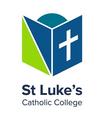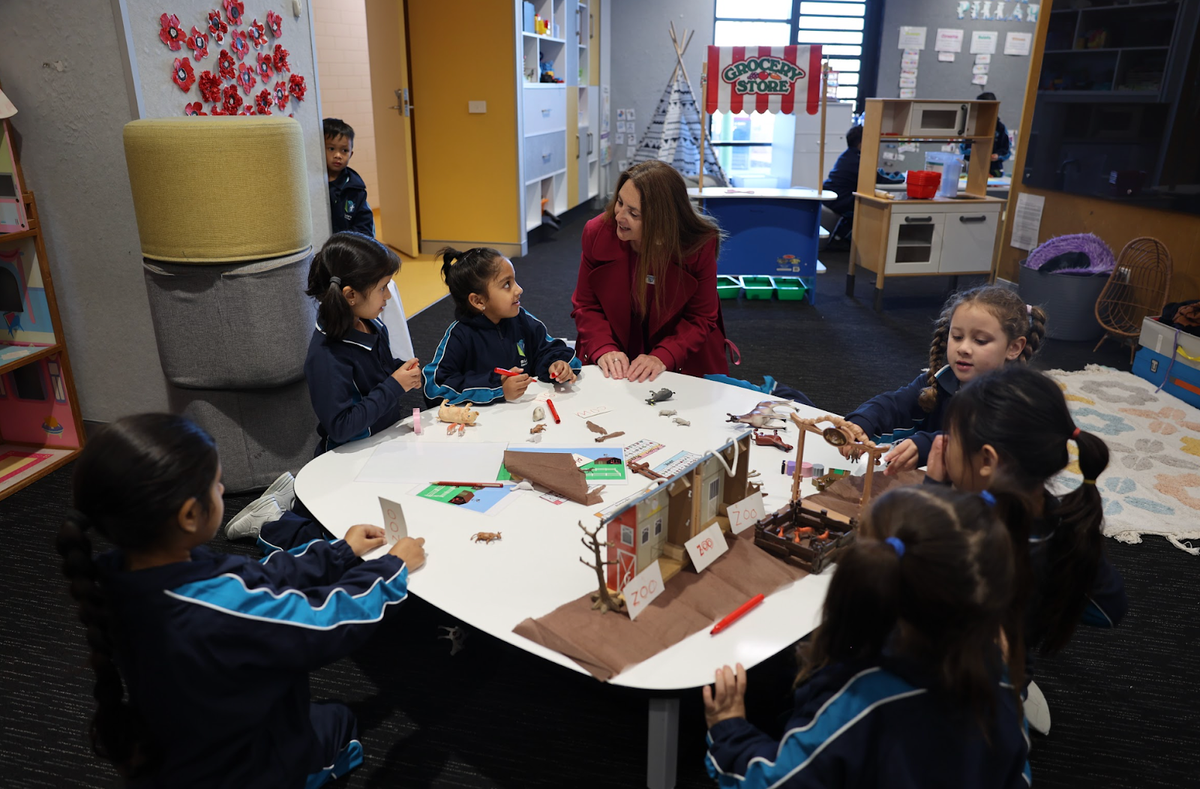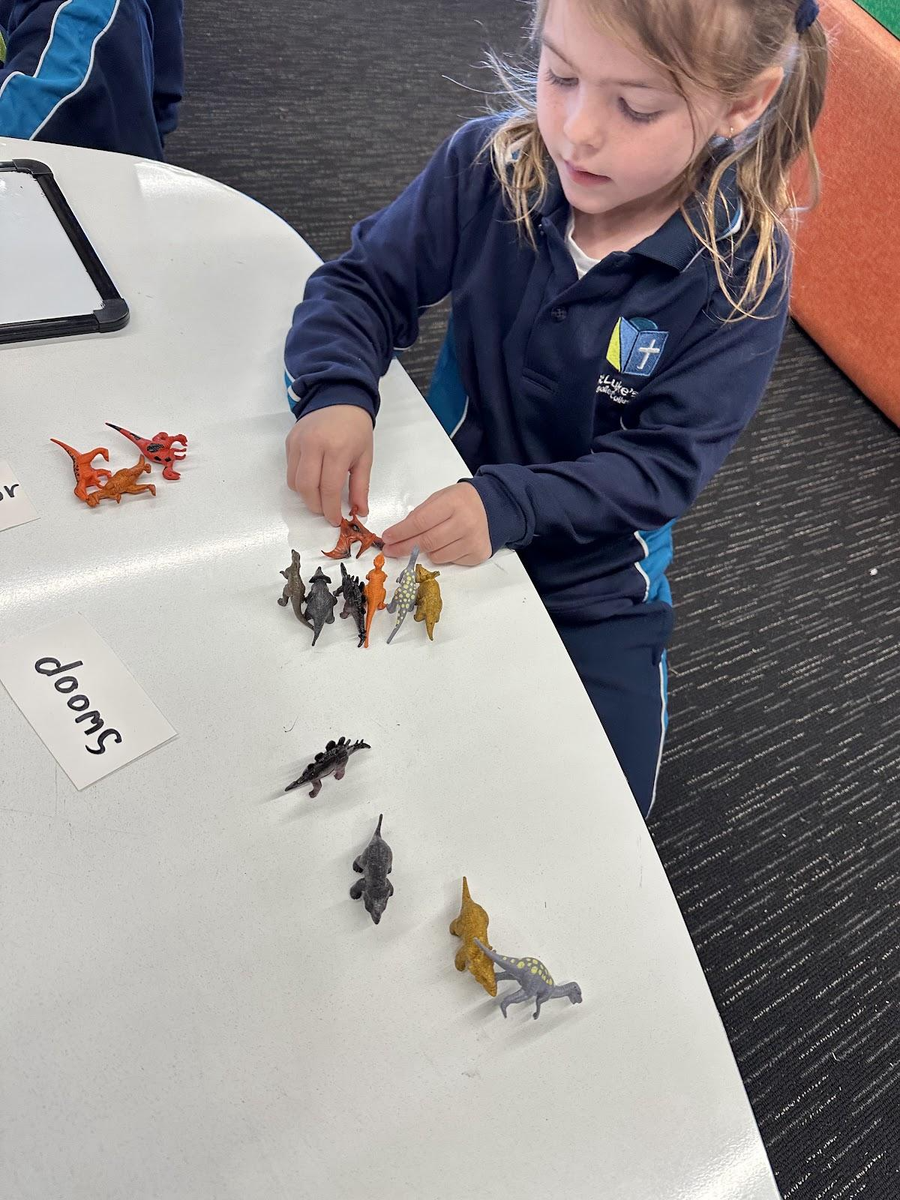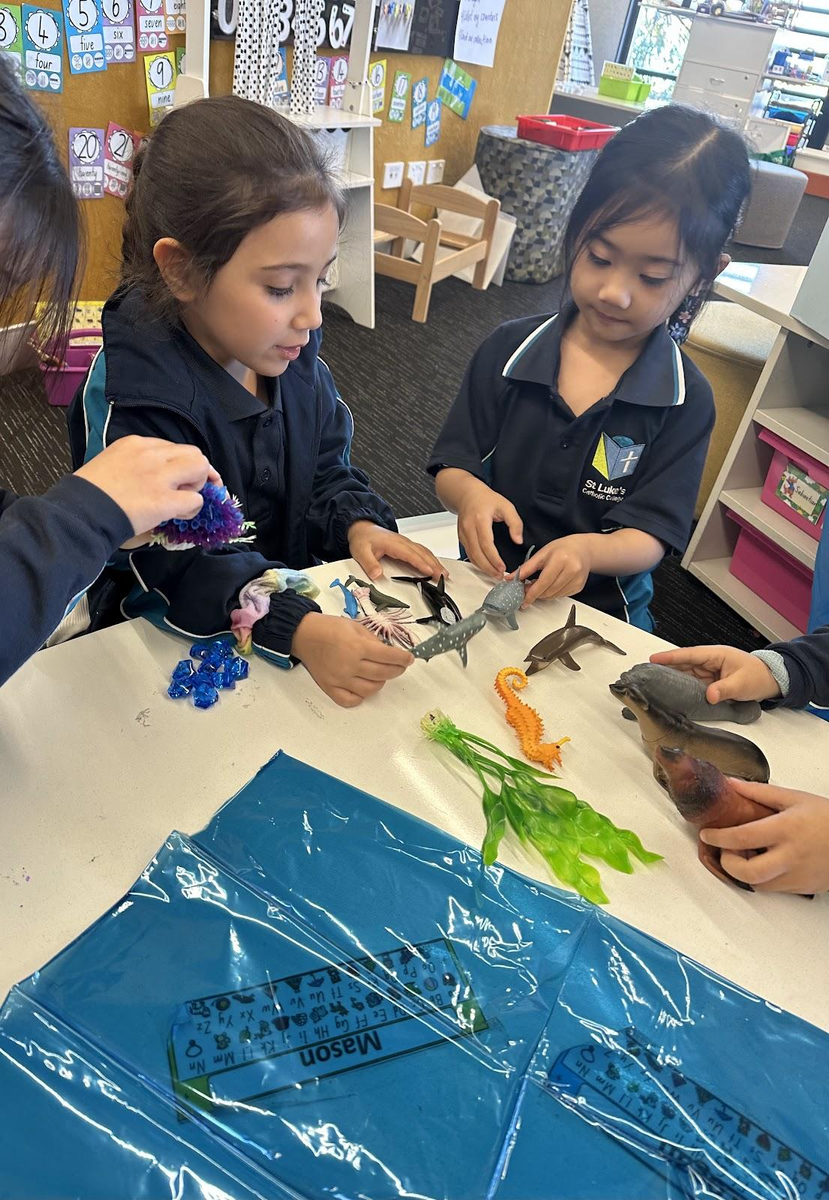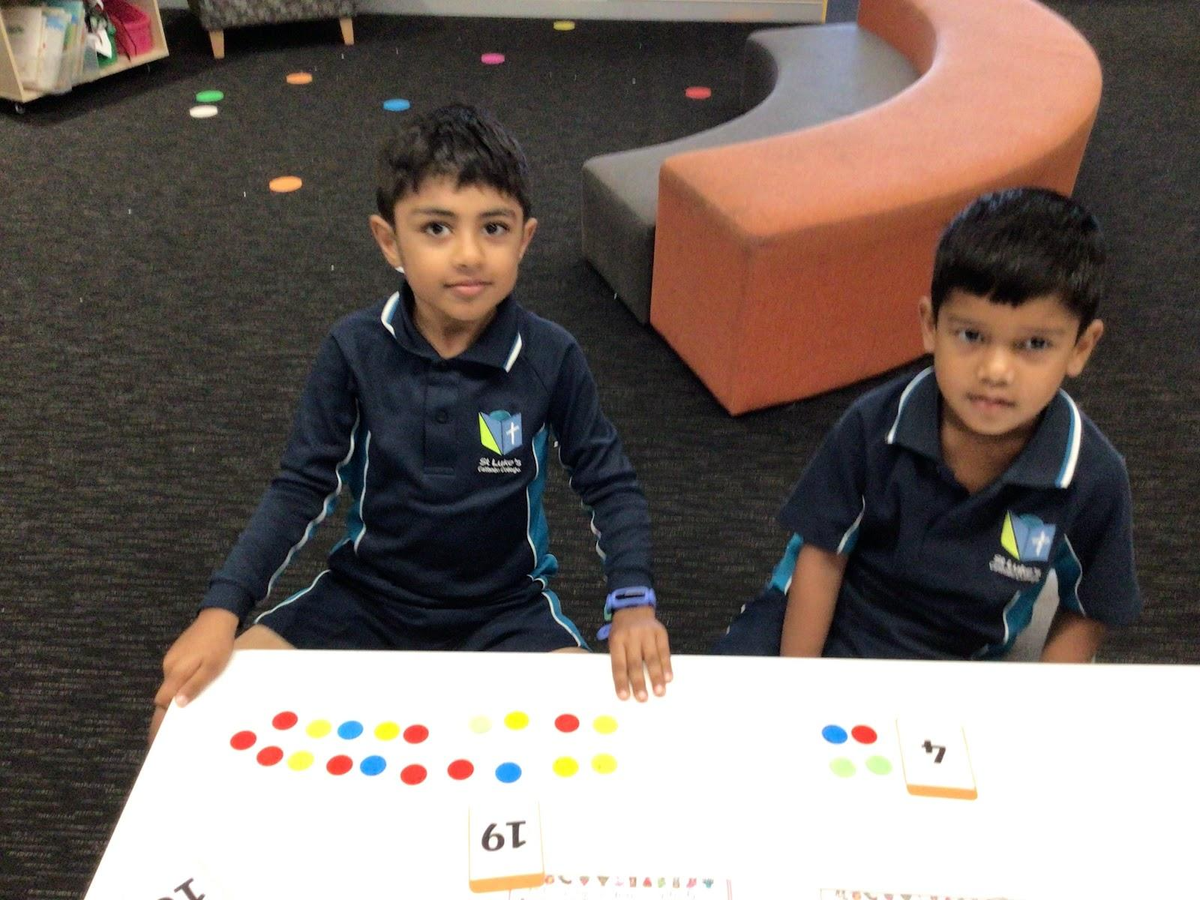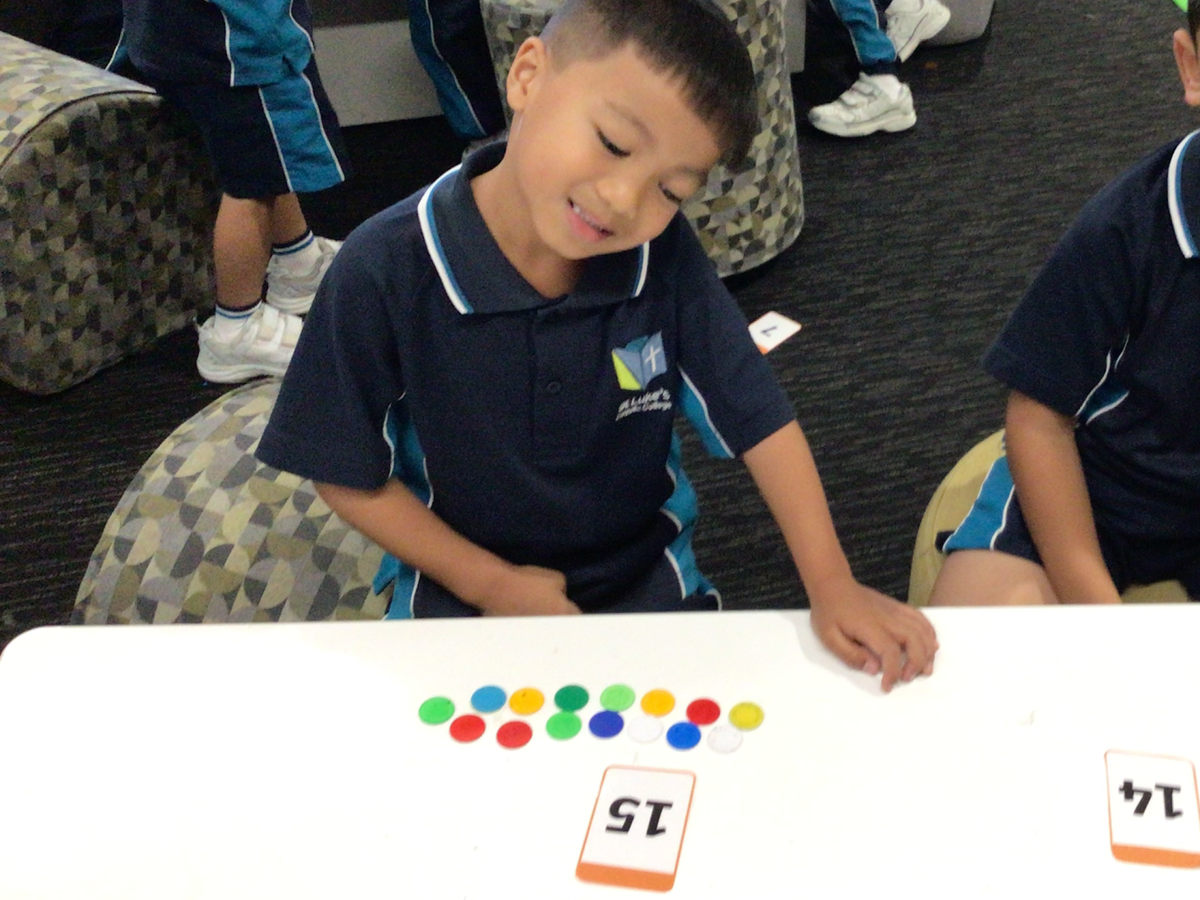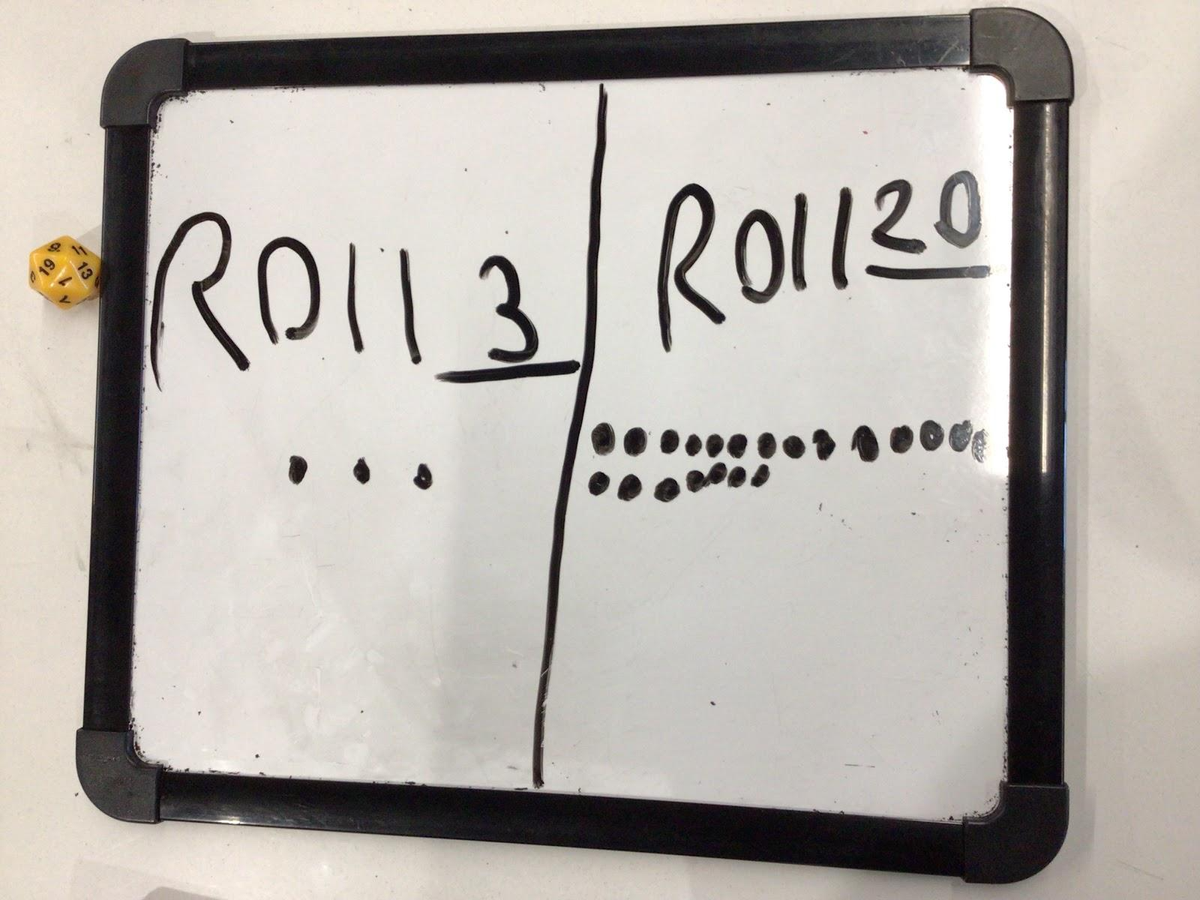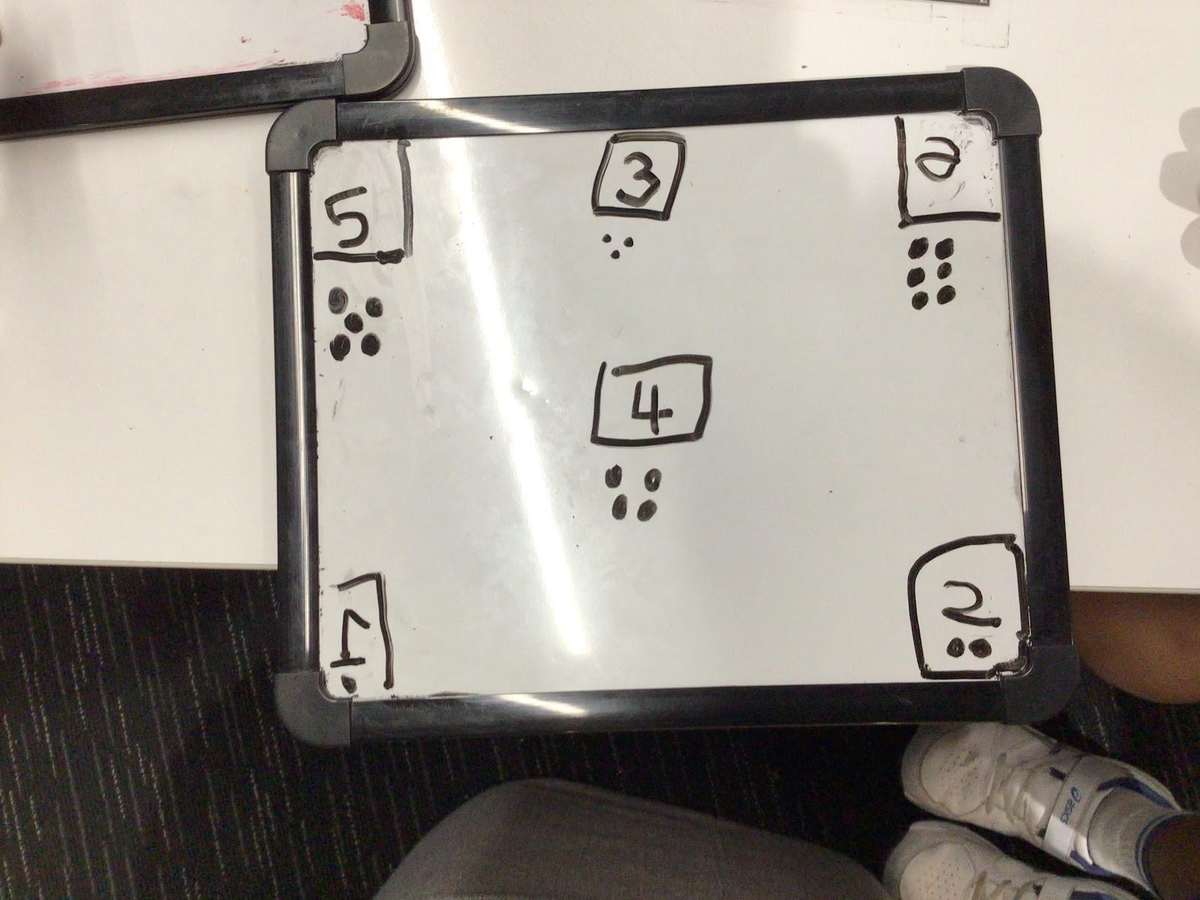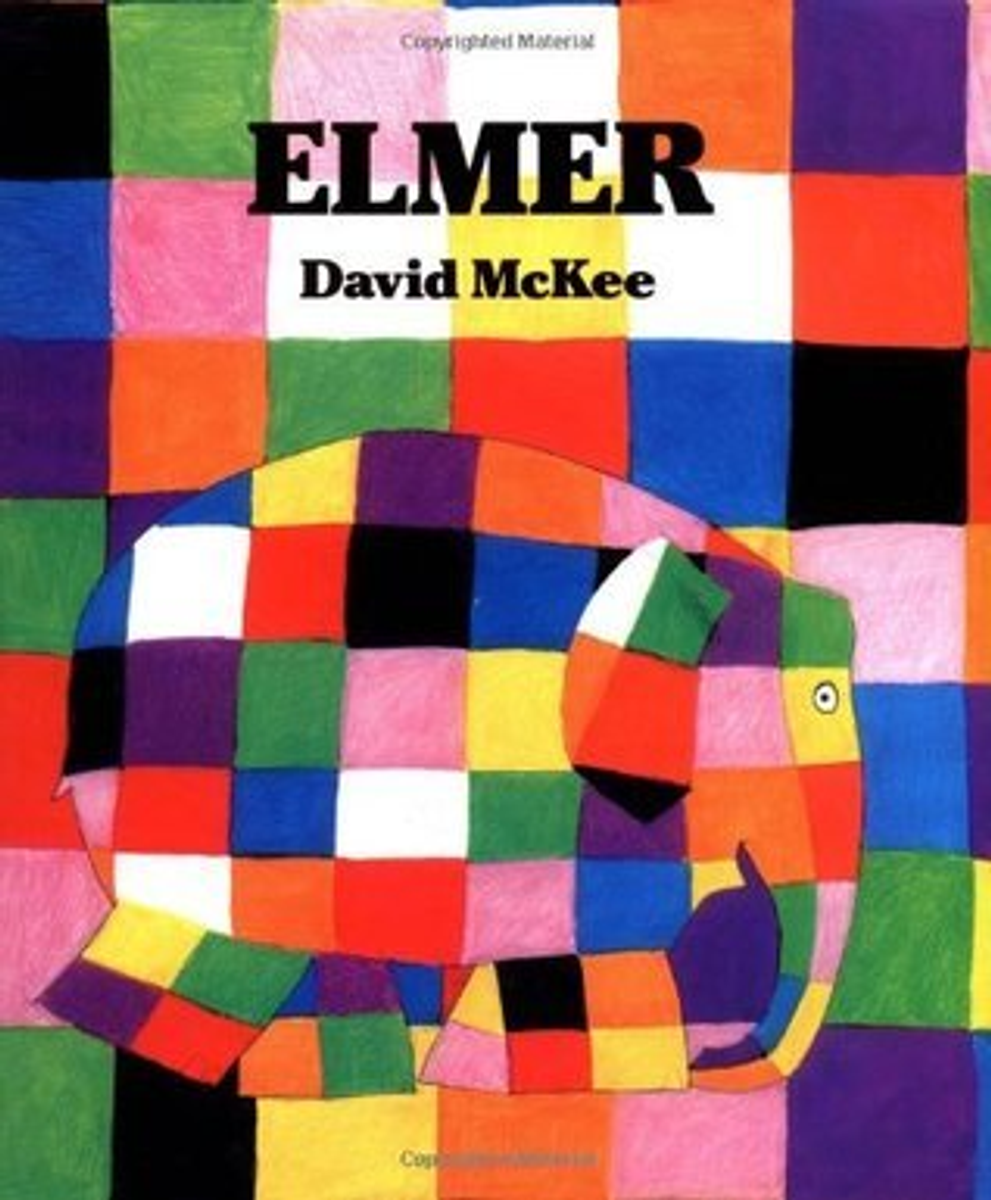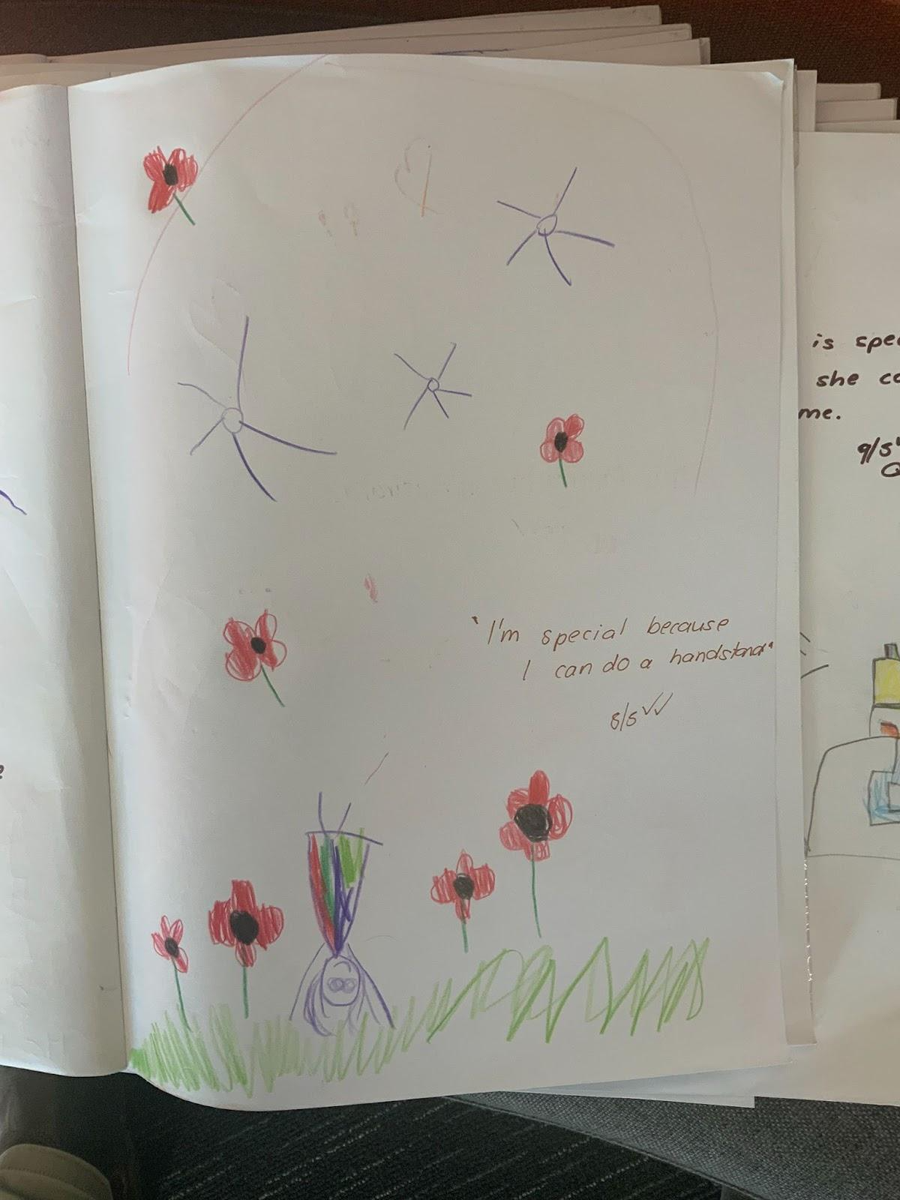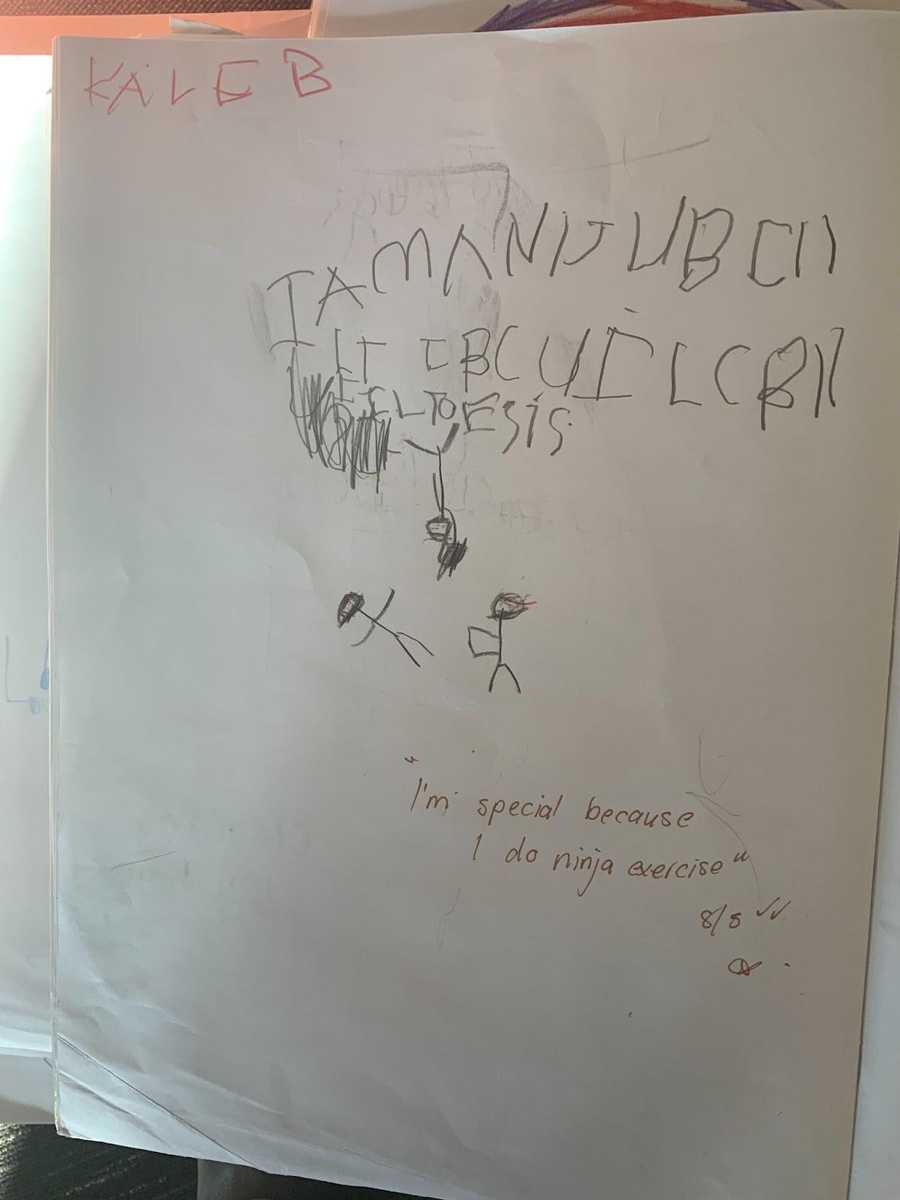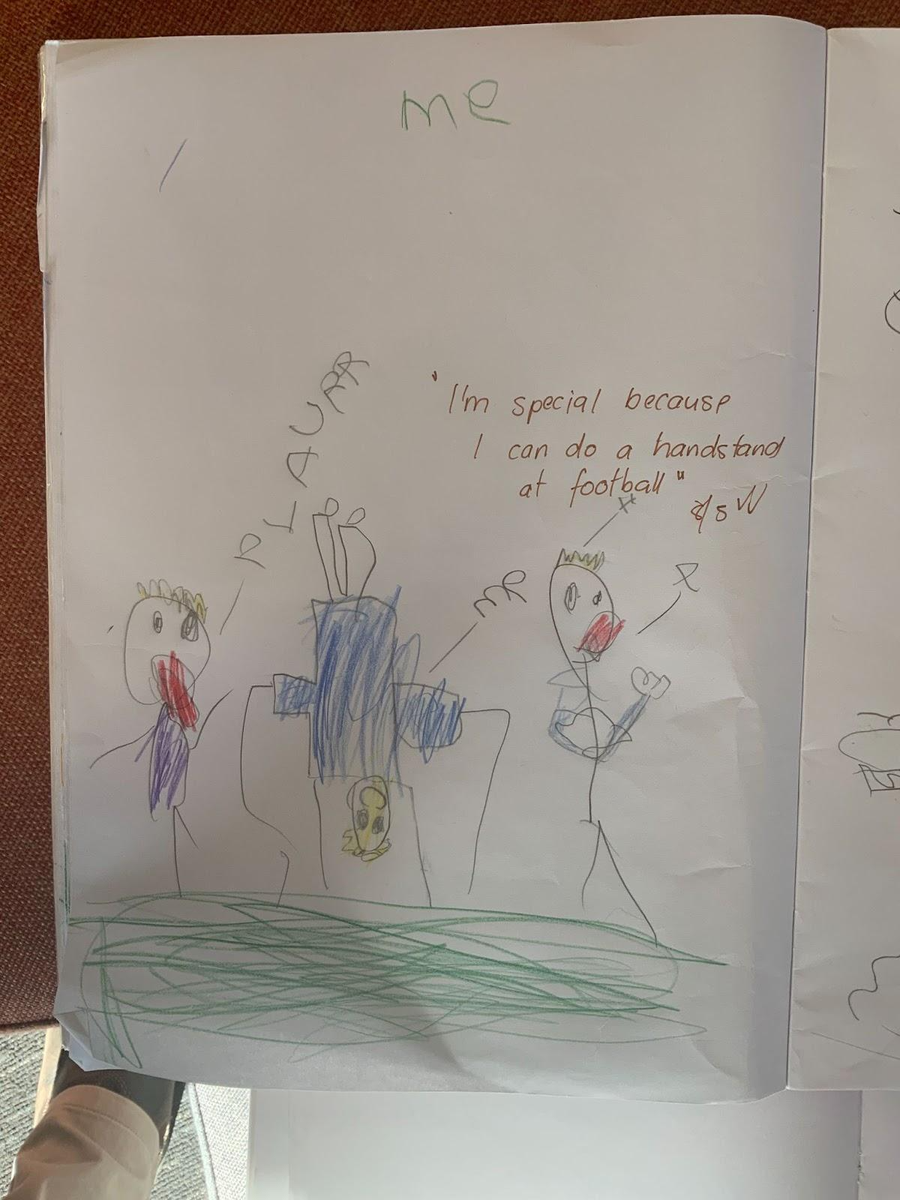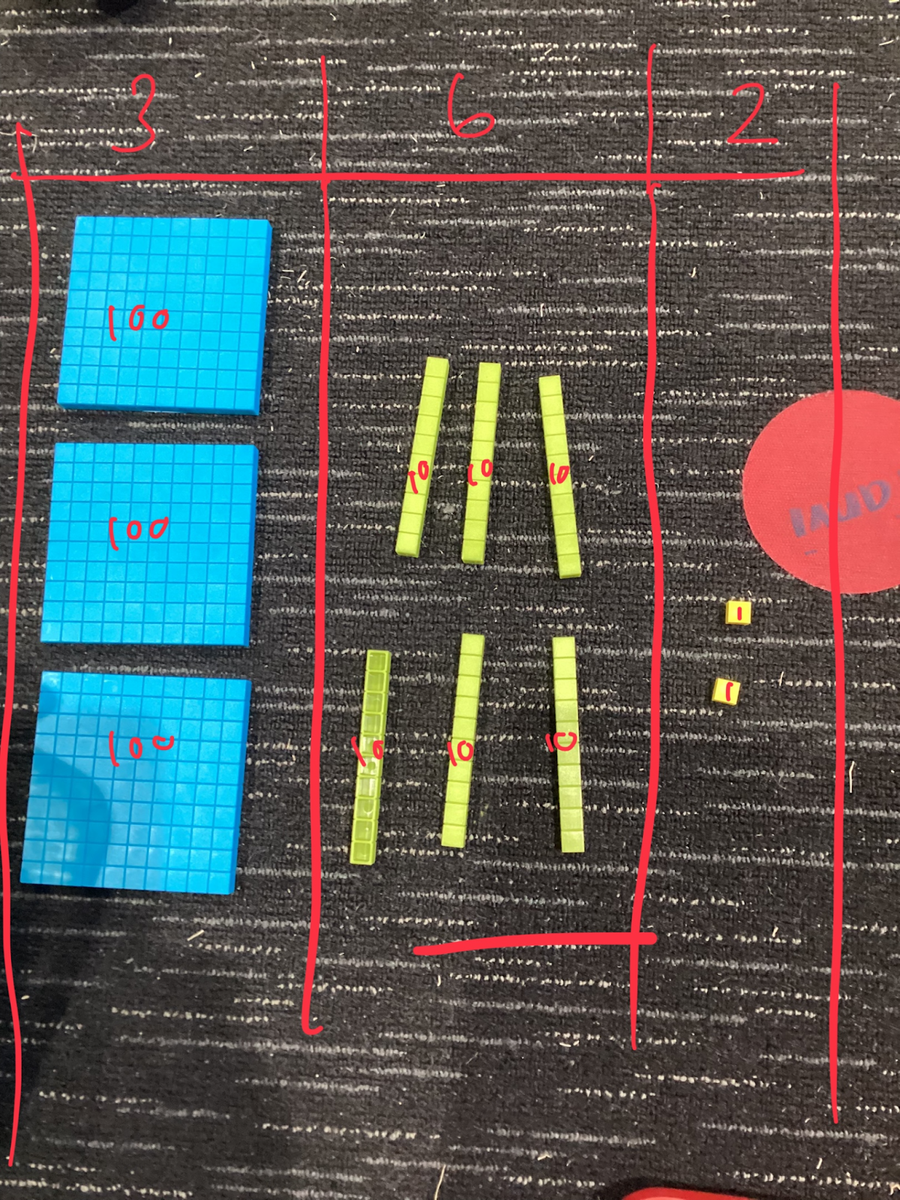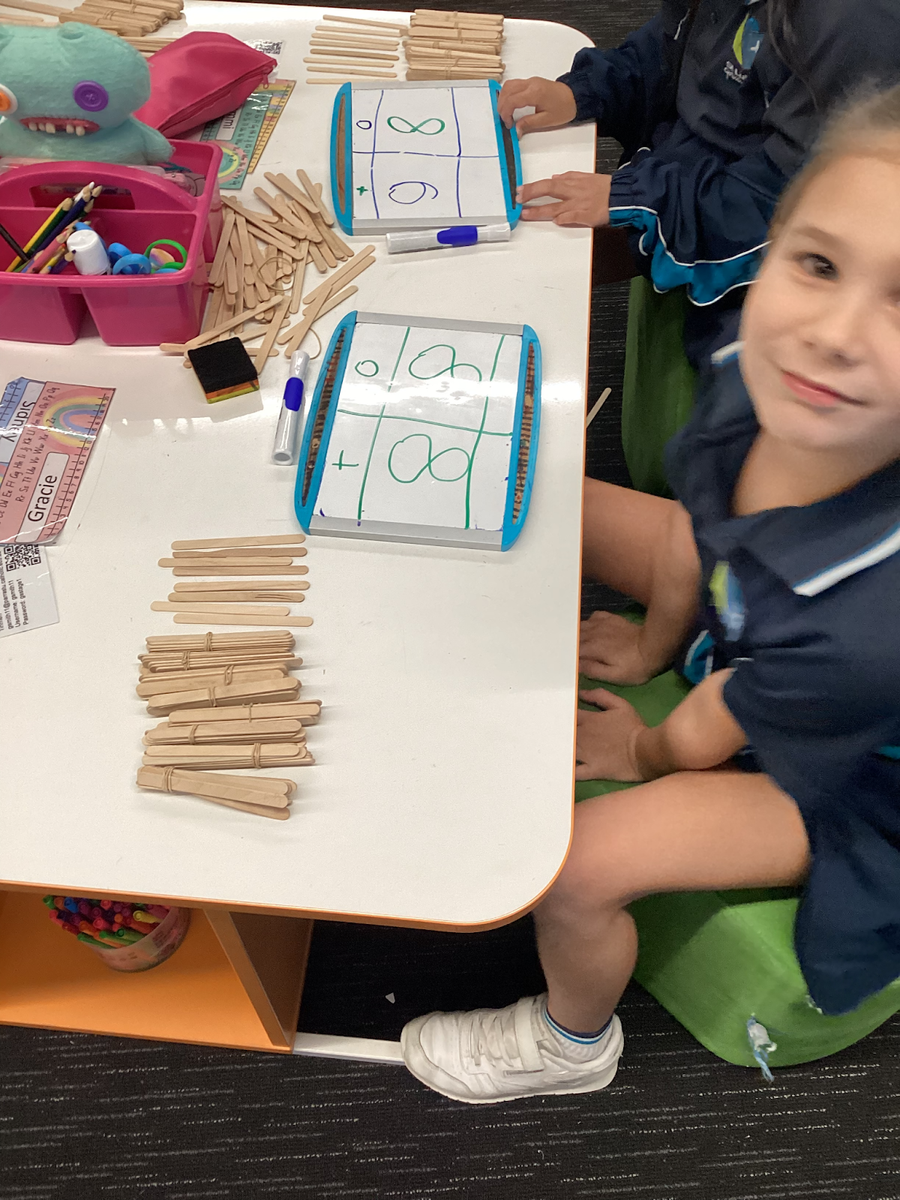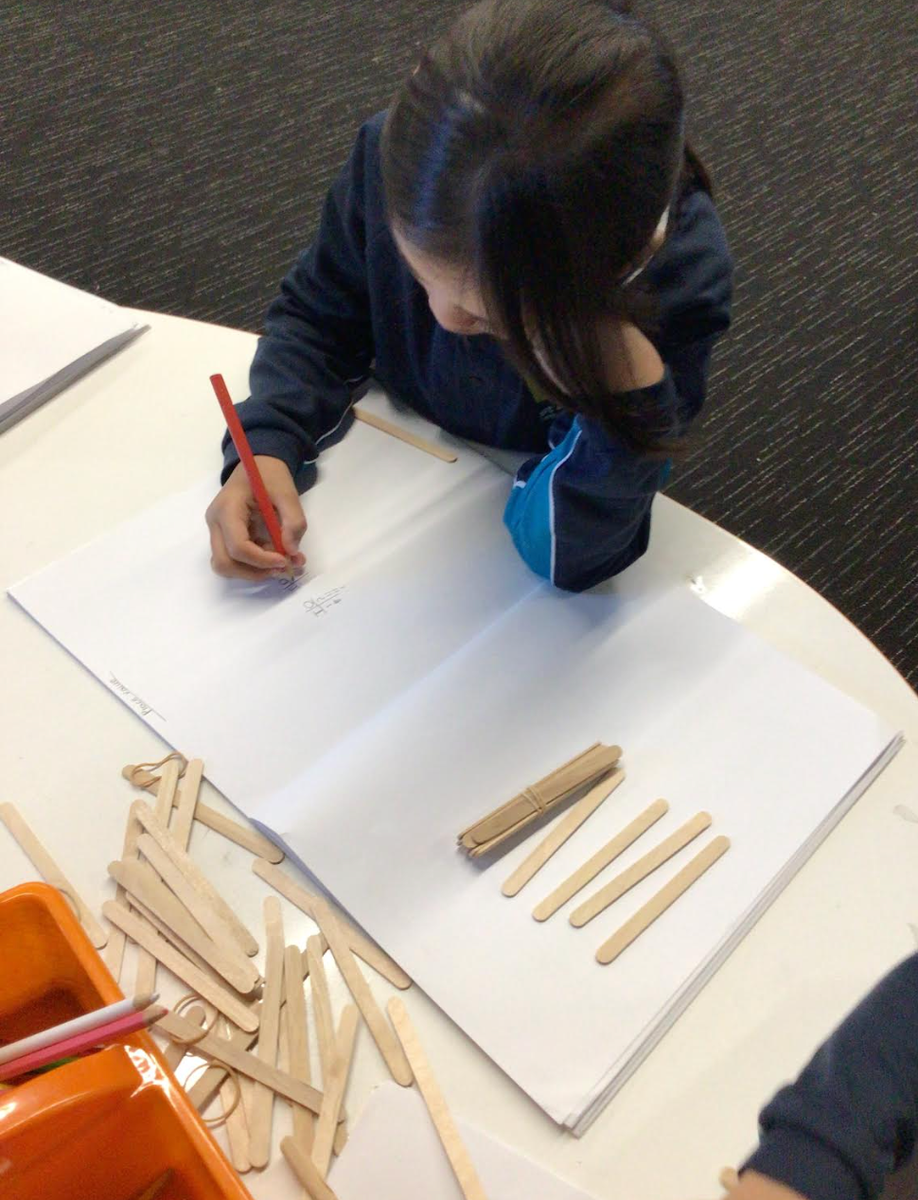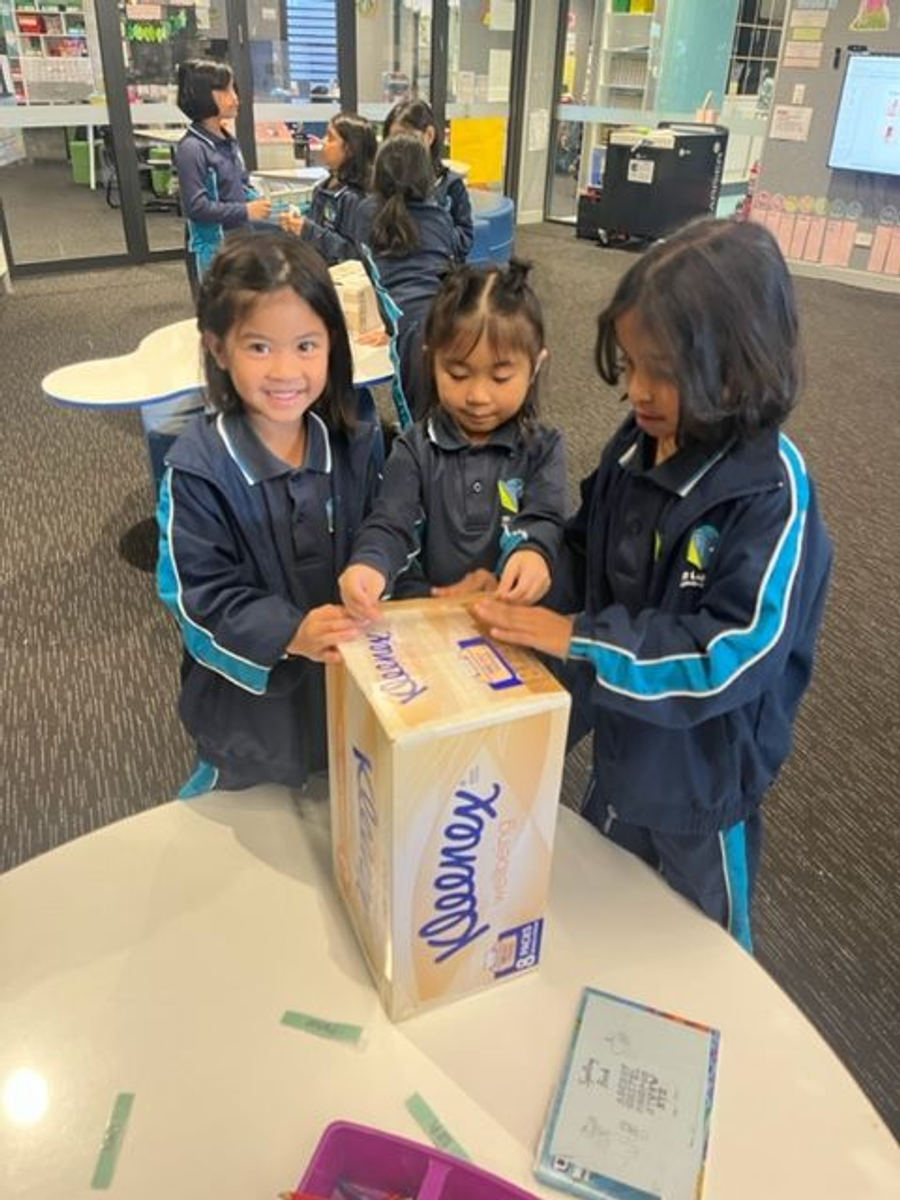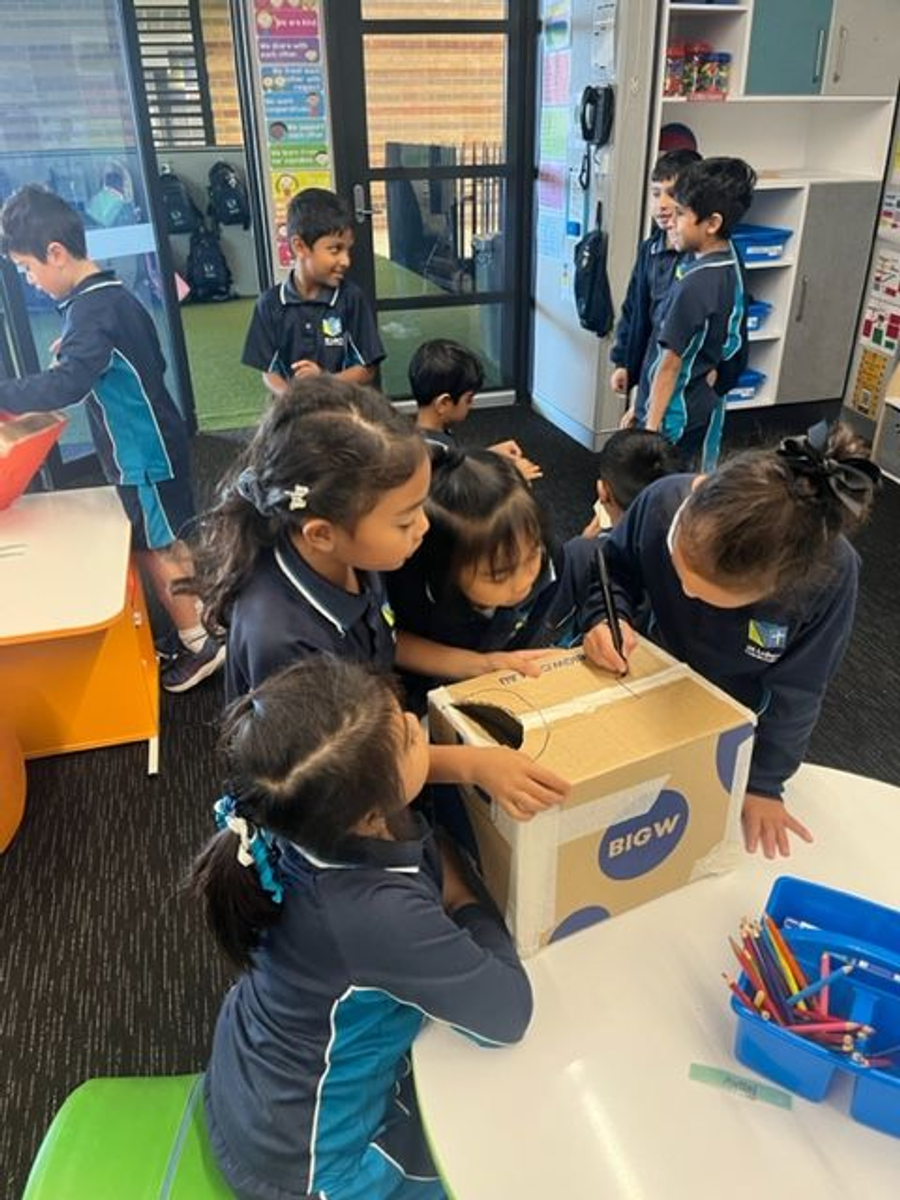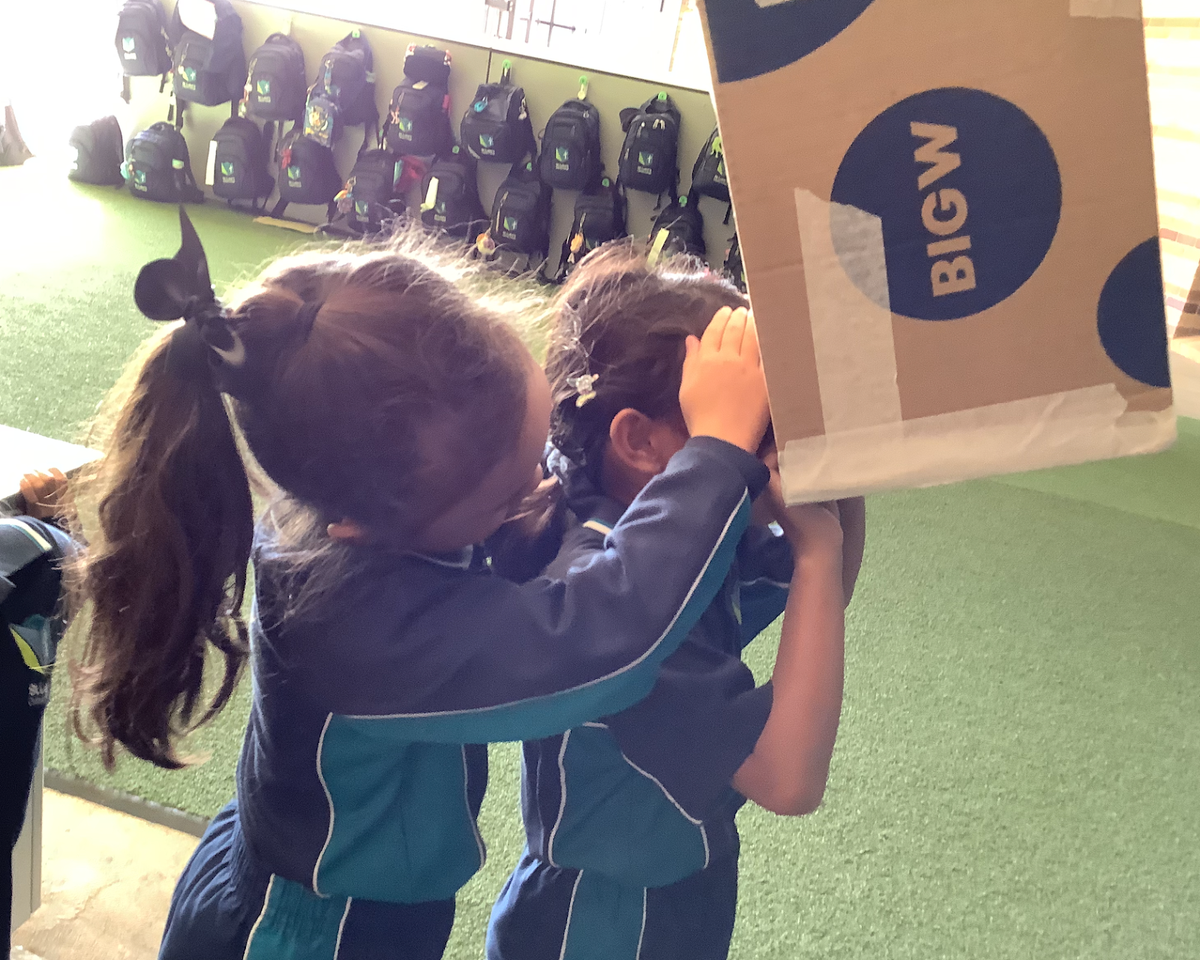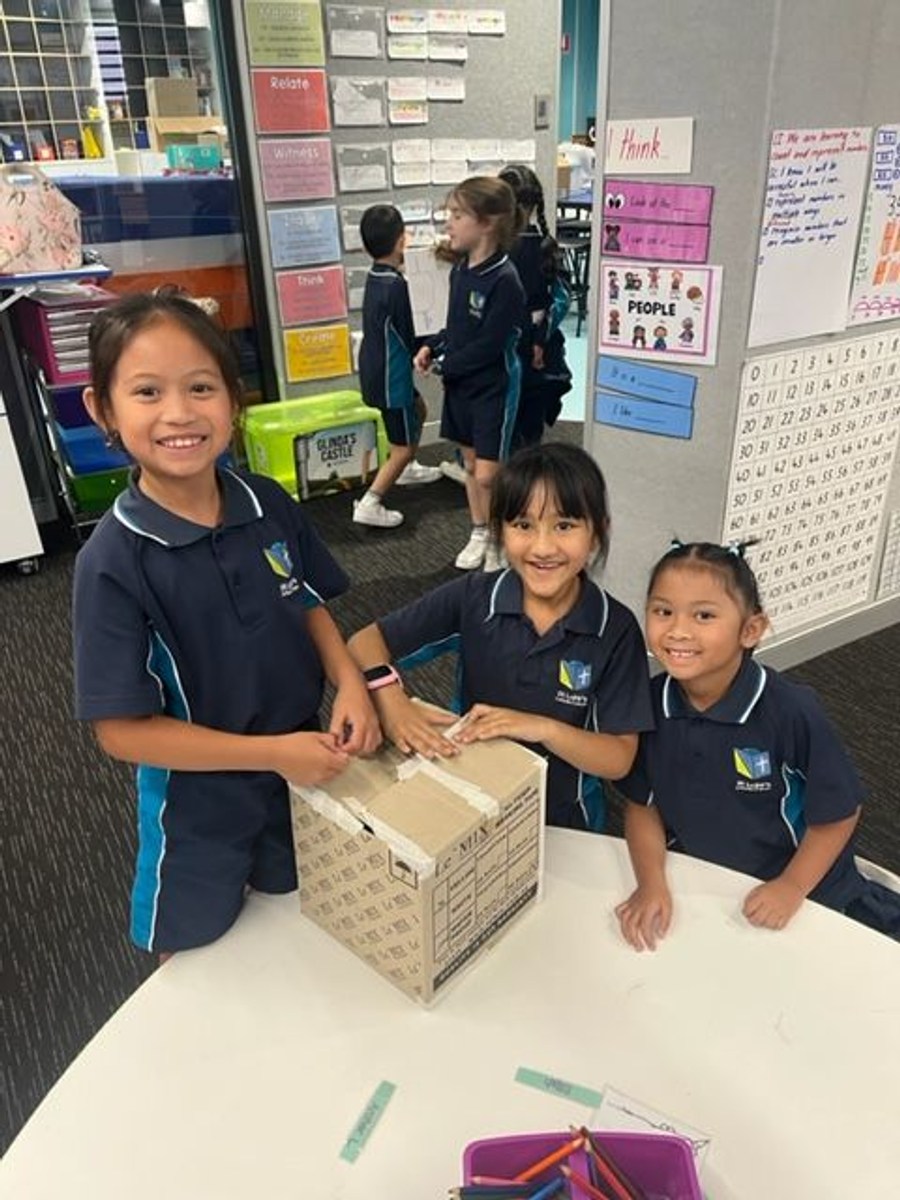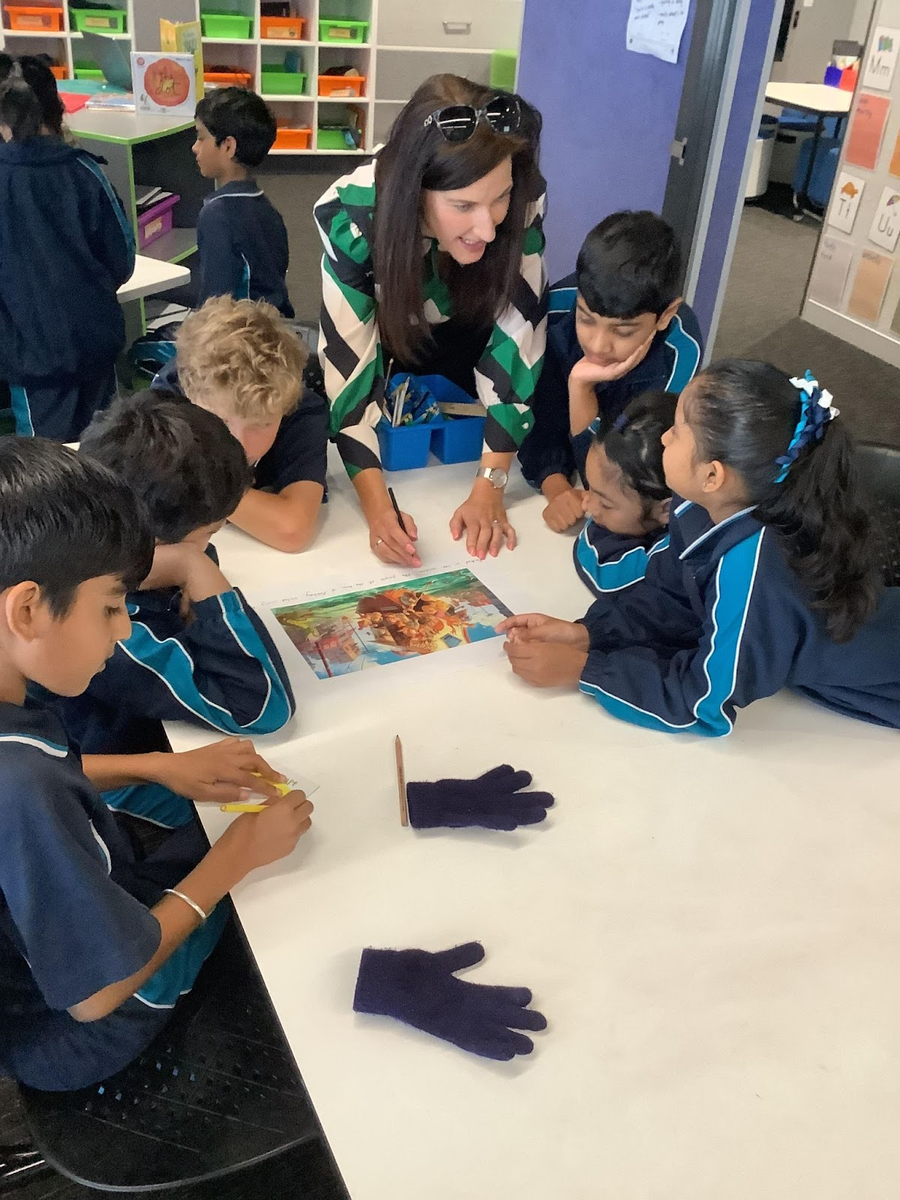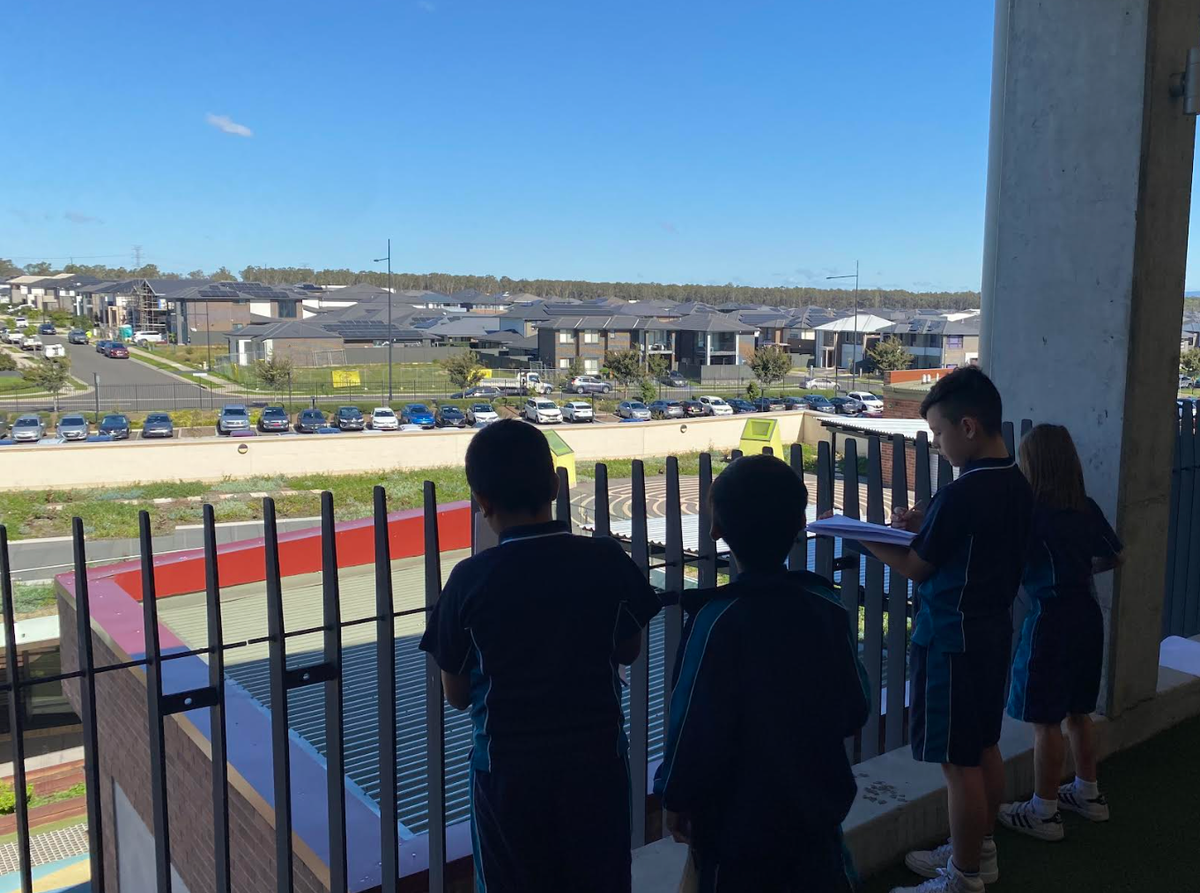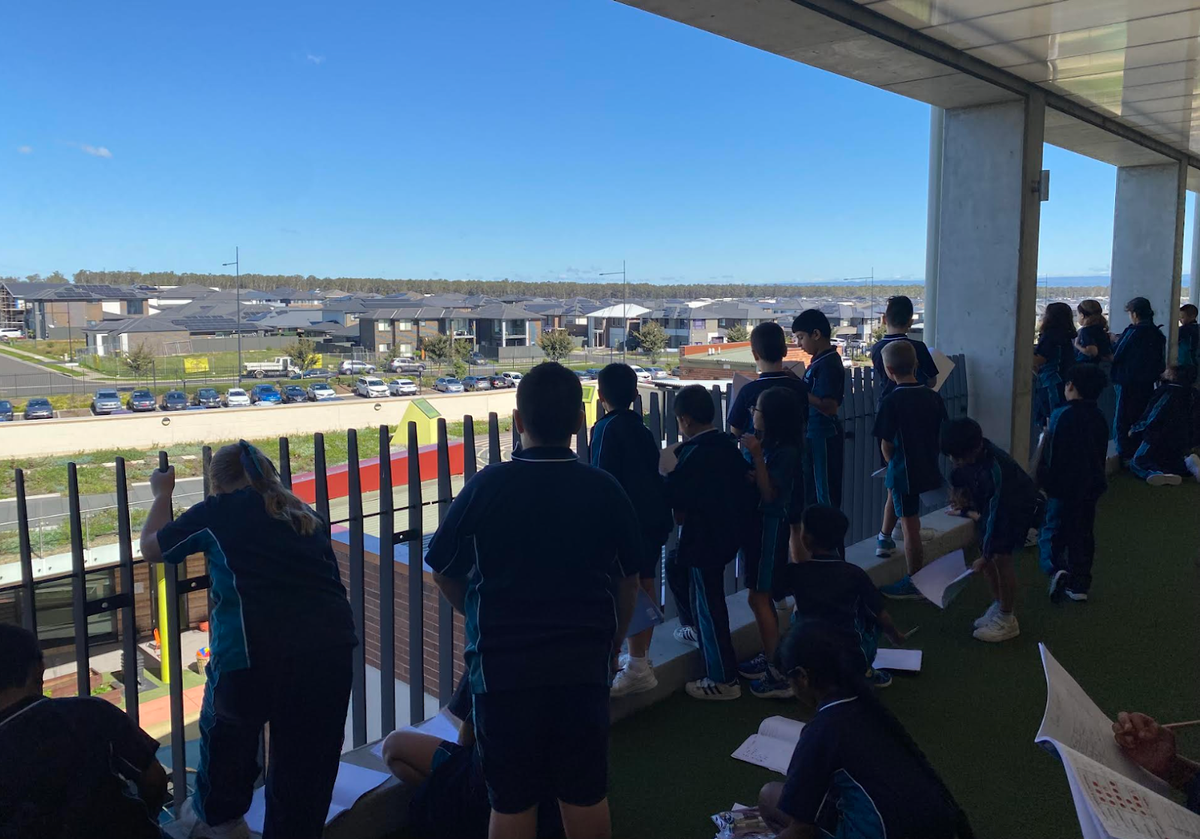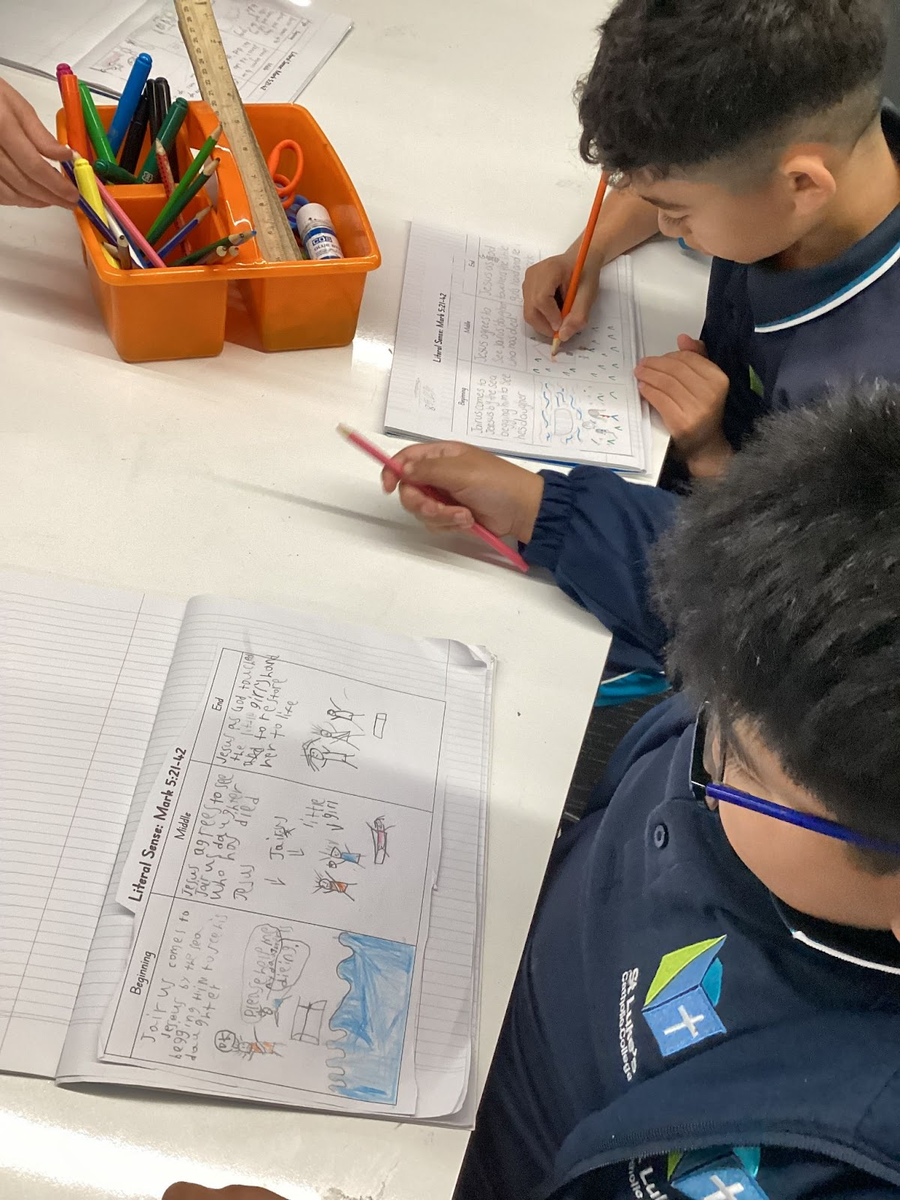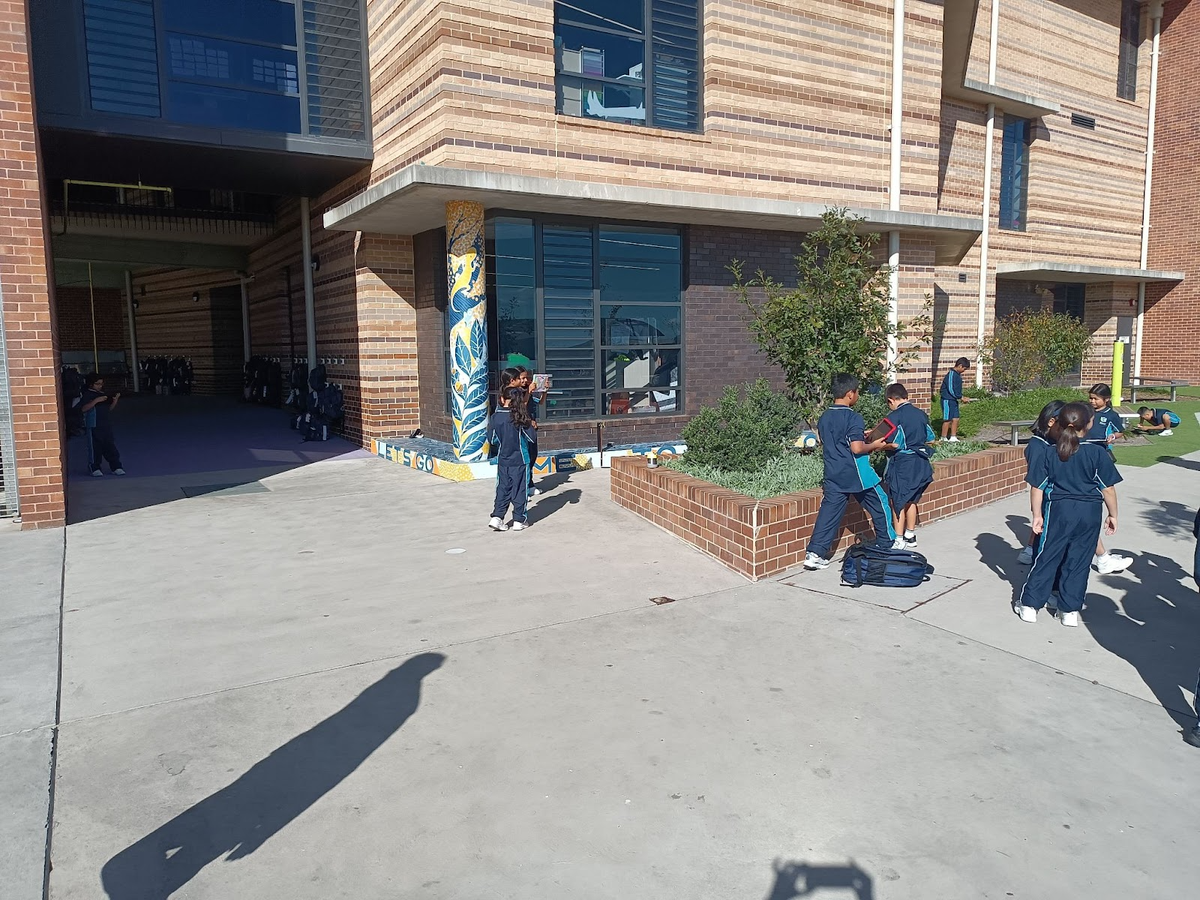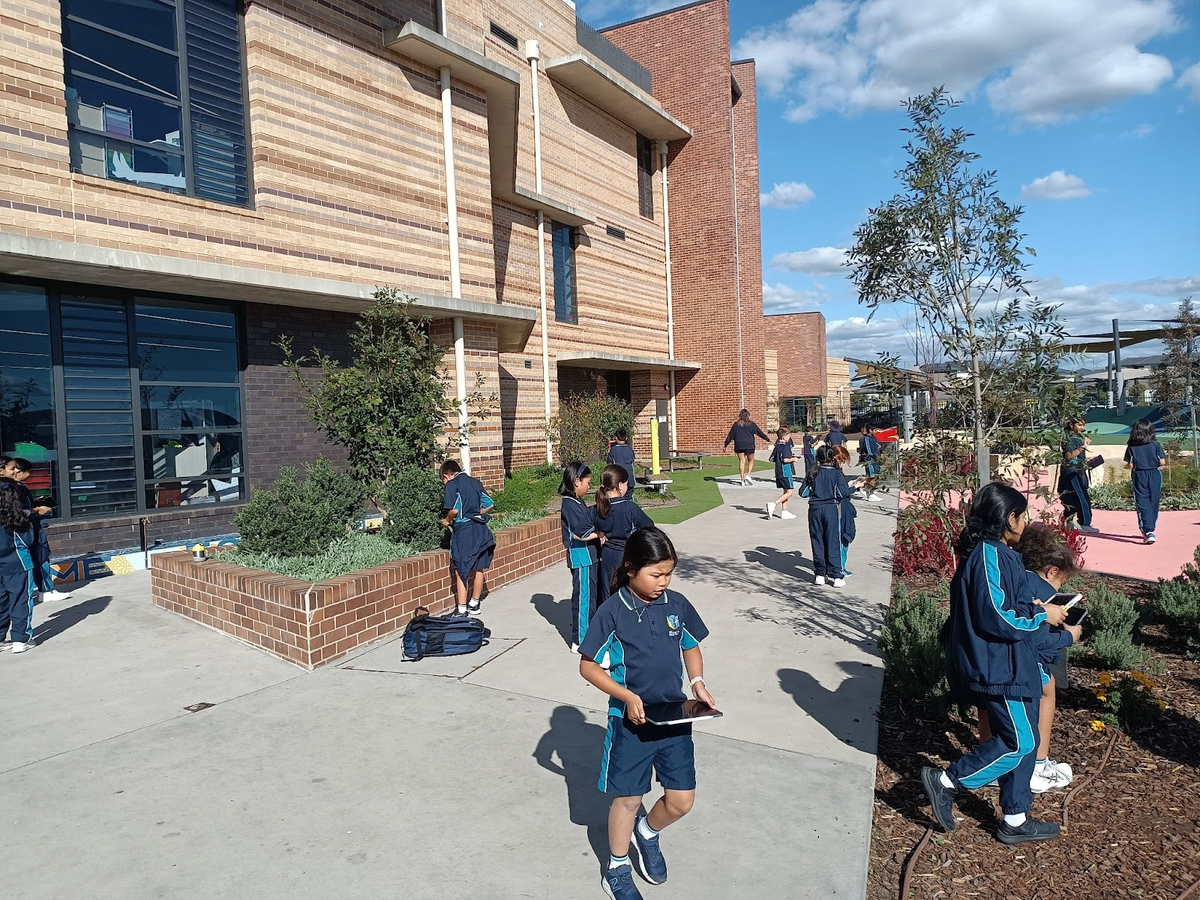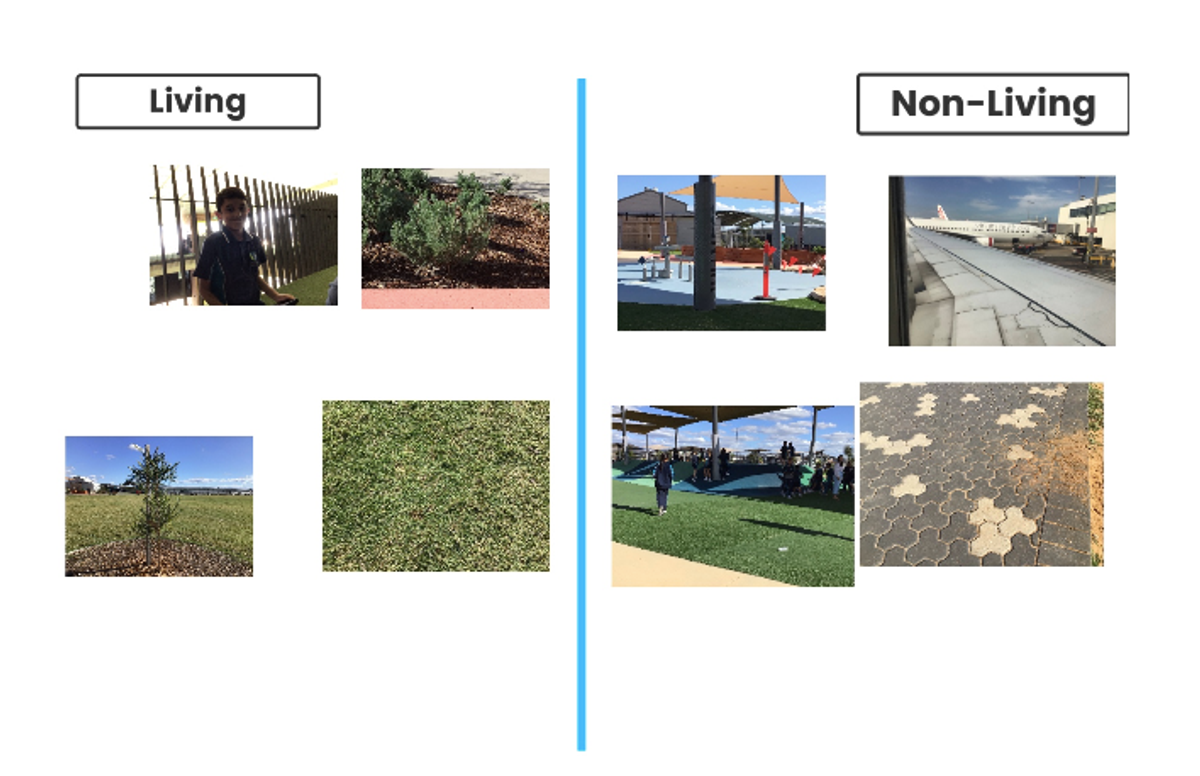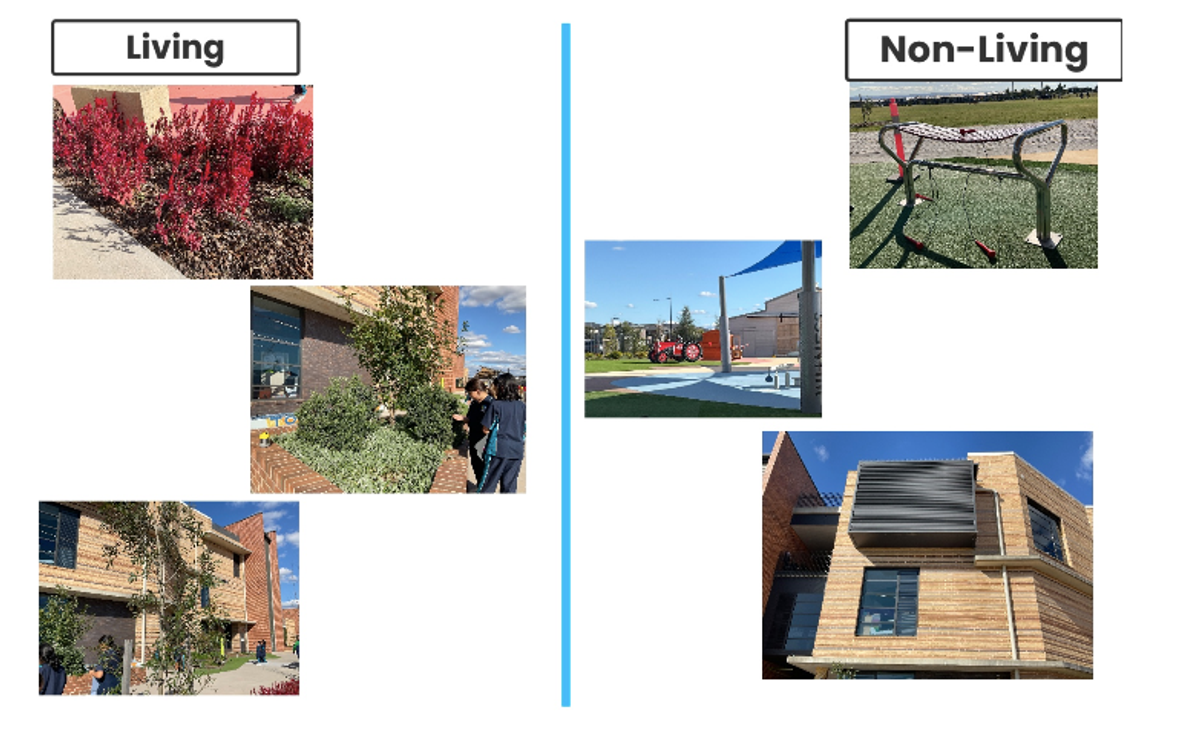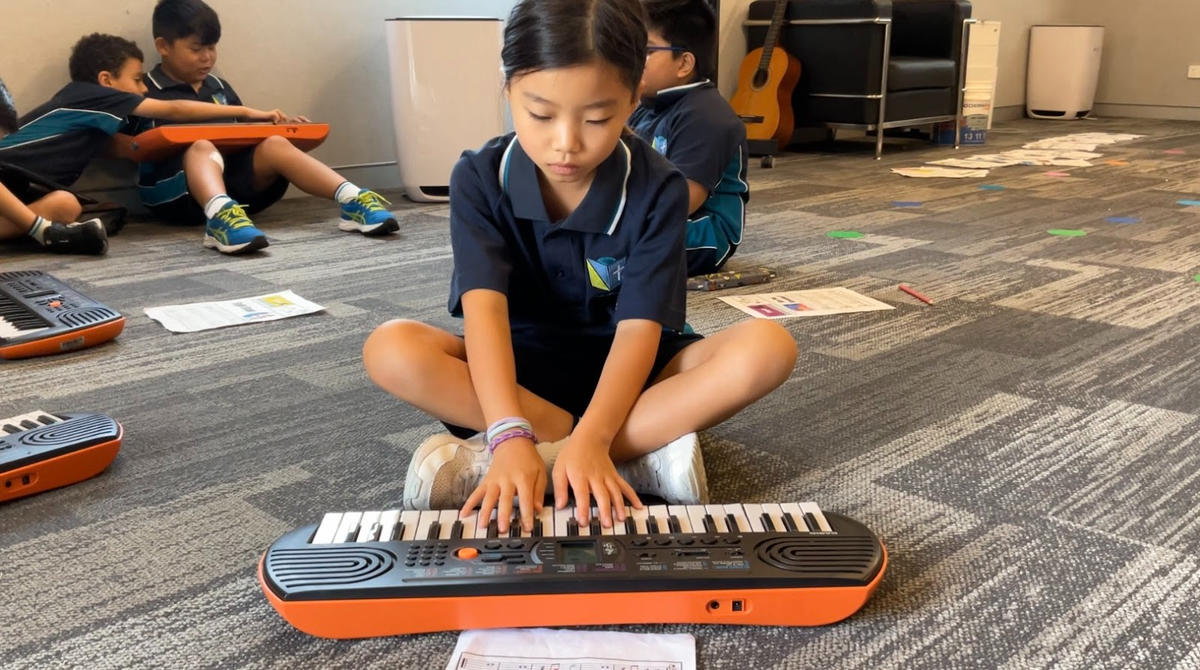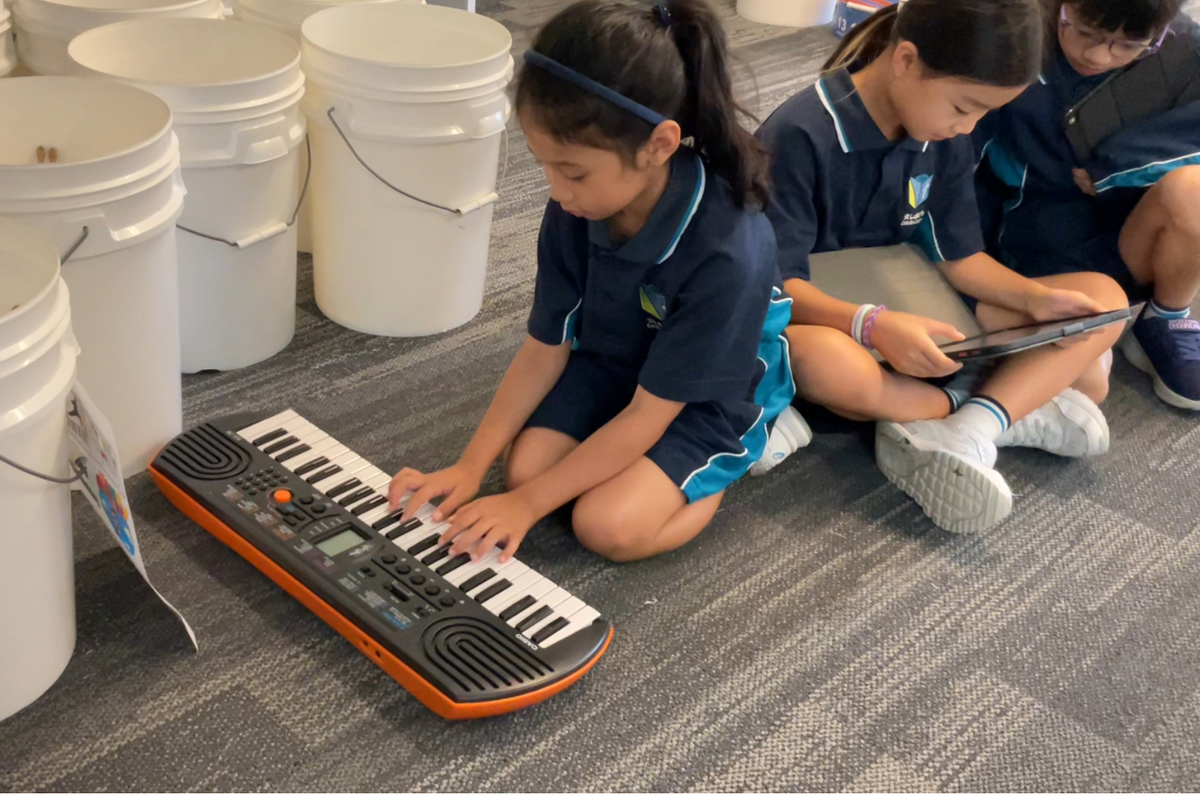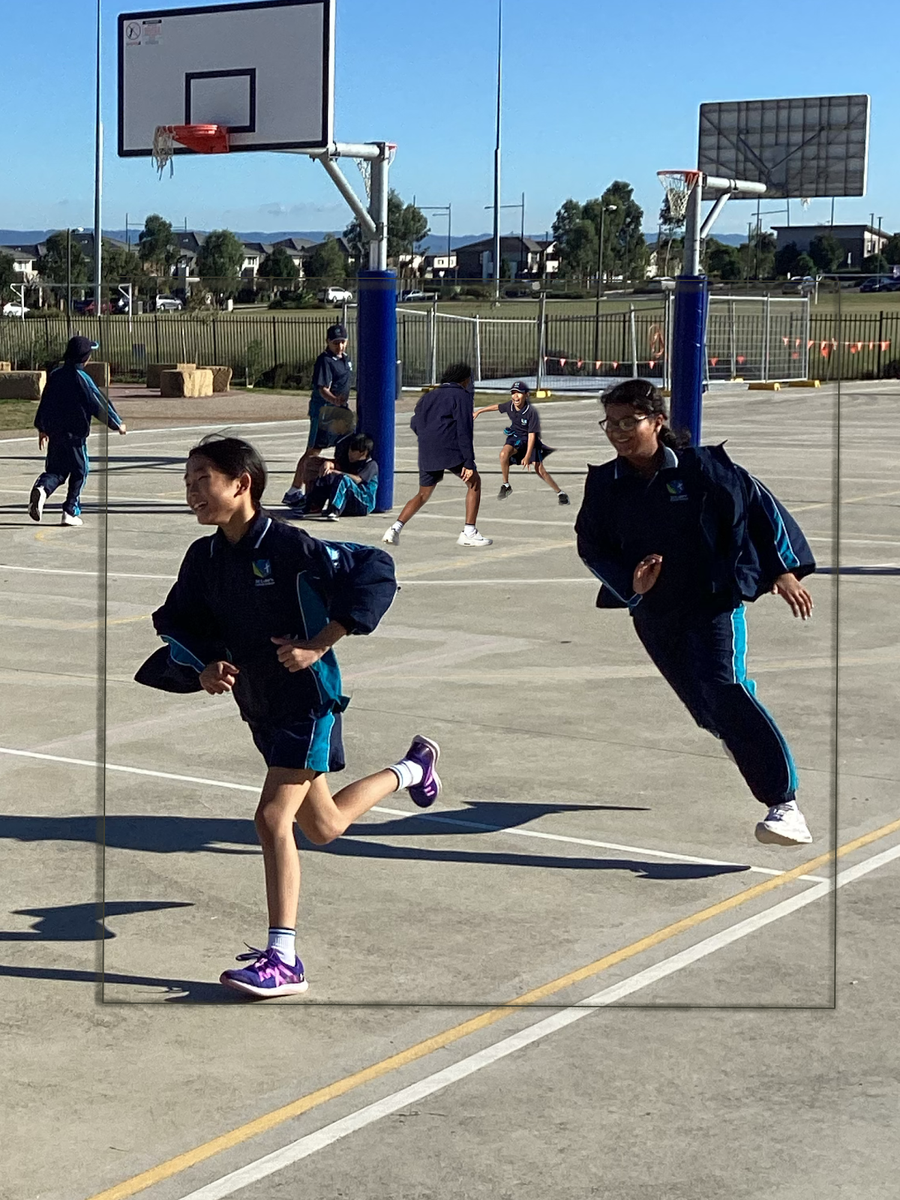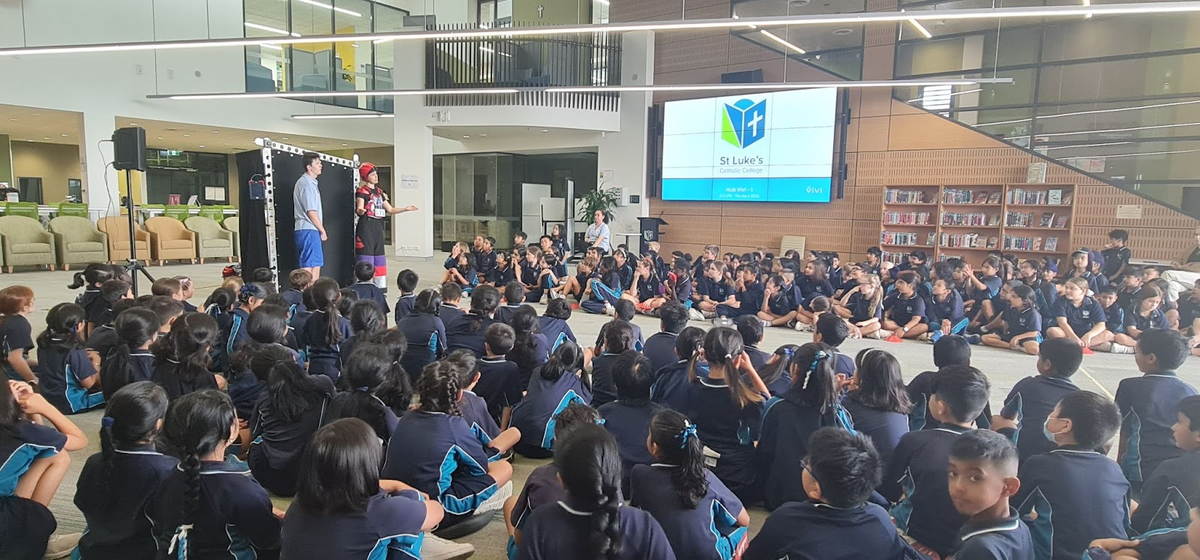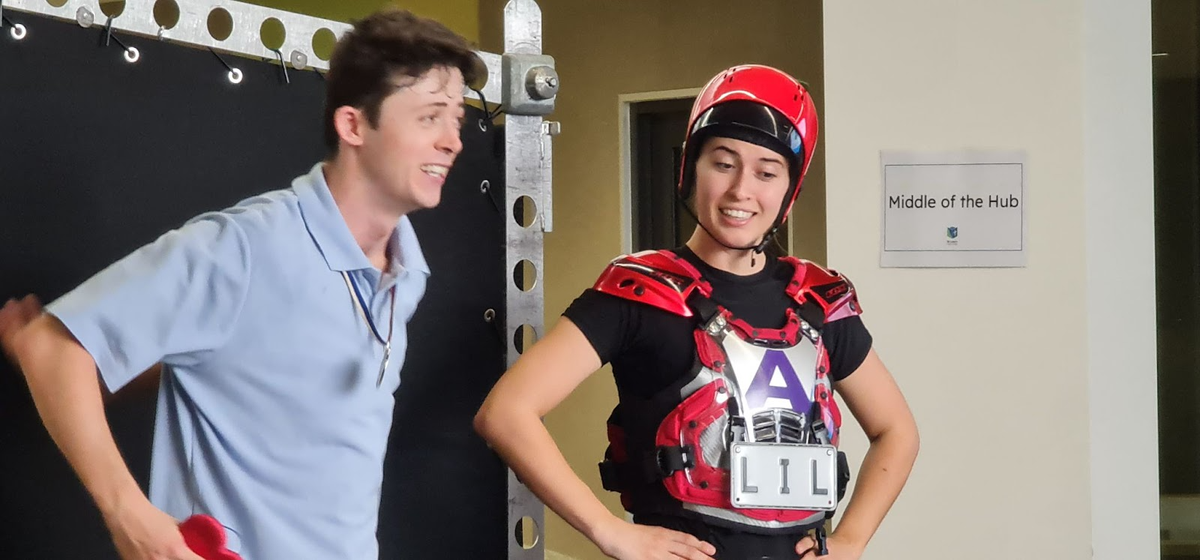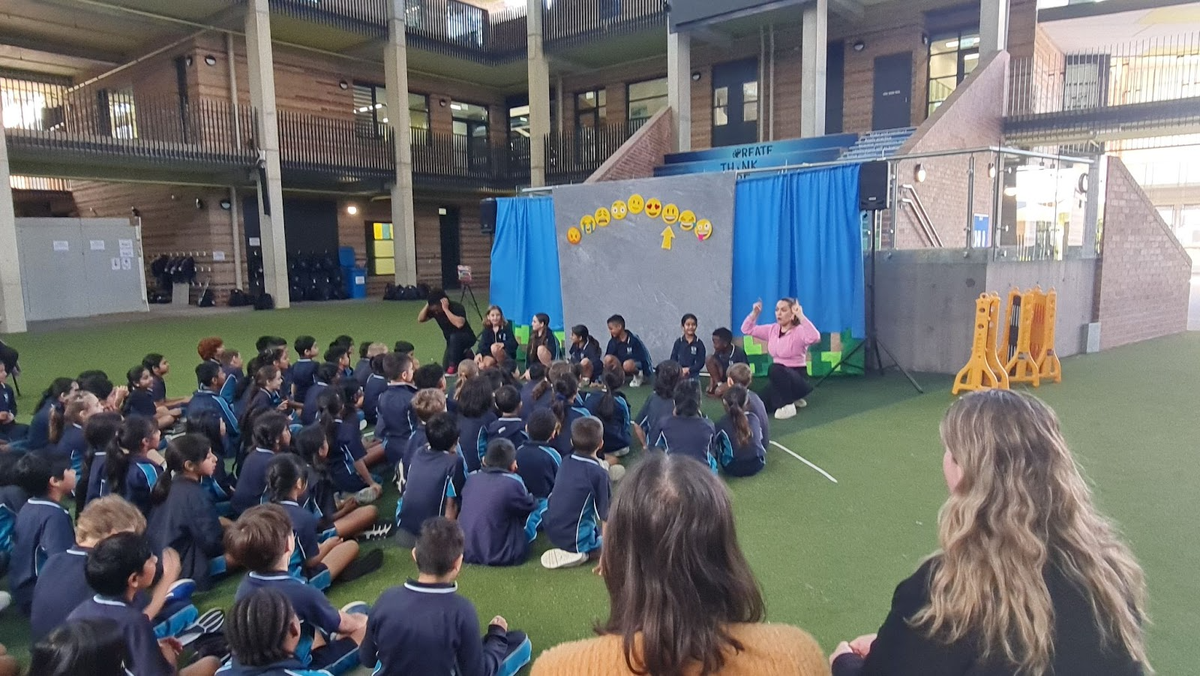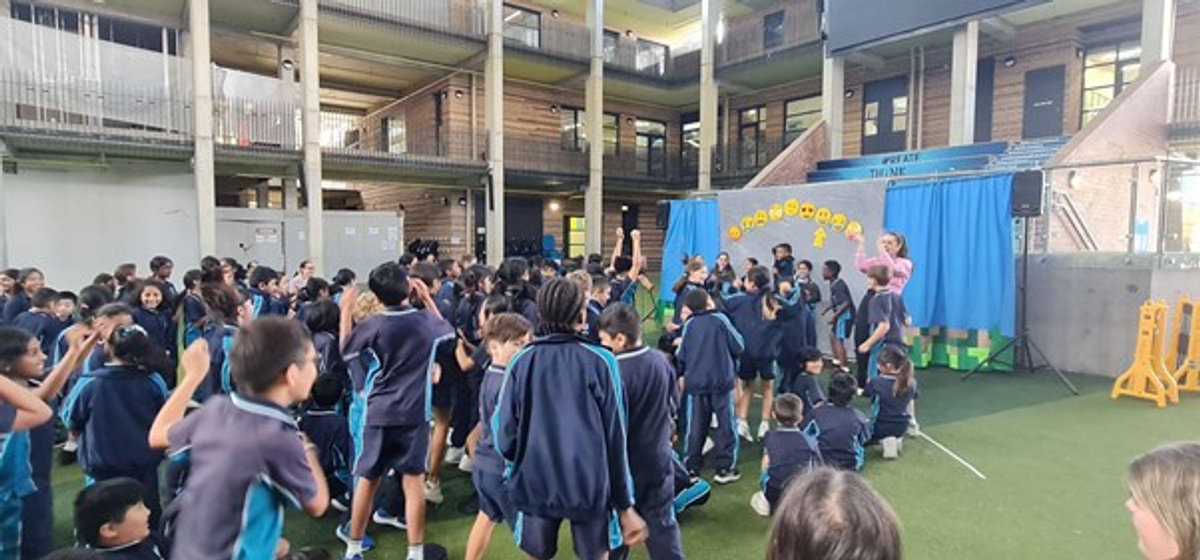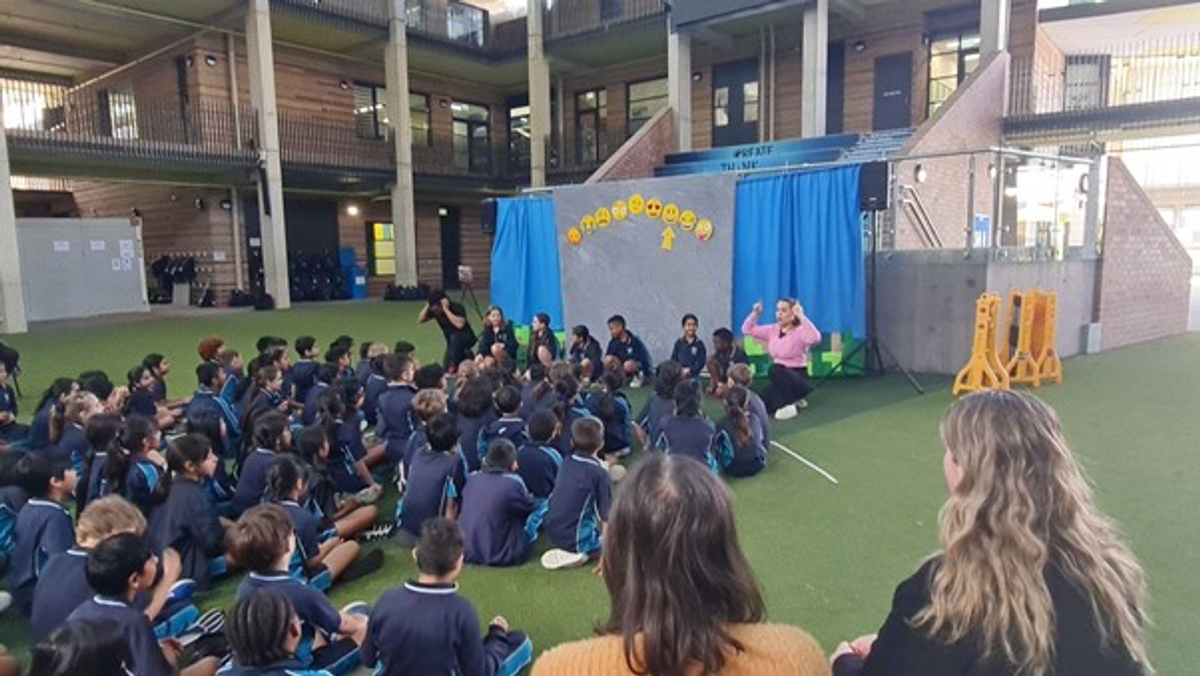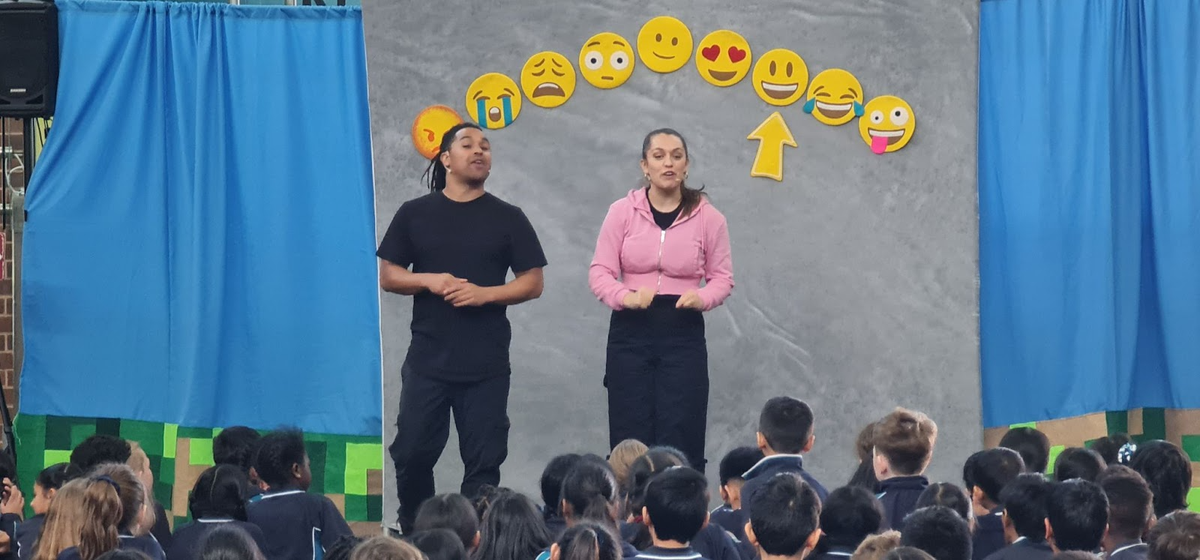School of Foundations
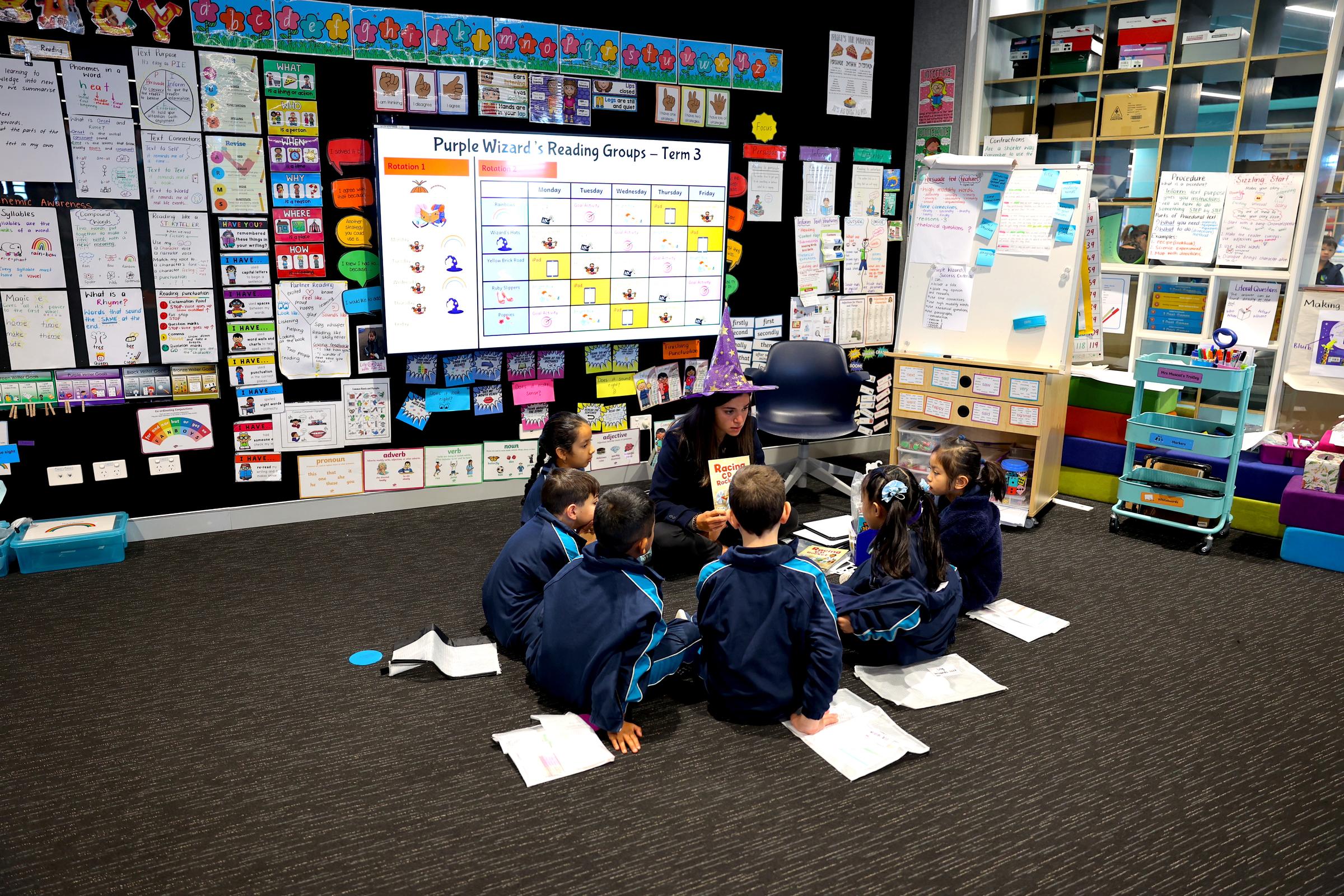
This week we had our parent learning walk. The parents were able to visit our Kindergarten and Stage 1 learning spaces. During our visit to Early Stage 1, the parents were able to observe the students engaging in play based learning with a focus on developing their oral language skills. A key skill in kindergarten is building their vocabulary so they are able to transfer their knowledge of words into their writing. The students in Kindergarten have been surveyed to find out topics of interest and this has been explored during their play based learning time. The teachers have also included texts about these topics of interest. Our parent learning walks have helped parents understand the learning process and the skills their child is developing.
In the visit to Stage 1 classrooms our parents were able to observe the learning during a Shared Reading session. Shared reading exposes children to rich and varied vocabulary, sentence structures, and language patterns. It helps expand their vocabulary and language skills by exposing them to words and phrases that they may not encounter in their everyday conversations. Through shared reading, children develop a broader understanding of language and improve their speaking and listening skills. Shared reading provides opportunities to develop phonemic awareness, which is the ability to recognize and manipulate individual sounds in words. It helps children become aware of the sounds of language, such as rhymes and alliteration. Additionally, shared reading can introduce children to phonics, the relationship between letters and sounds, by pointing out letters and discussing their sounds within the context of the story. During shared reading, our teachers model and teach various comprehension strategies, such as predicting, questioning, and making connections. By engaging in discussions about the story, characters, and events, children learn to think critically, make inferences, and understand the underlying meaning of the text.
ES1
English
Mini-world Play-based Writing
As part of our imaginative writing unit this term, our Kindergarten students have immersed themselves in mini-world play based sessions. These sessions have provided the opportunity for our students to explore a variety of worlds that assist them with generating ideas for their stories, including Jungle, Ocean, Transport and Dinosaur World! It has been so fascinating observing the students relate to one another and act out scenarios and experiences in their mind, using an animal or figure to convey their thinking. Not only is small-world play supporting our students’ writing, but it also promotes creativity, curiosity and the development of social skills.
We are looking forward to seeing some high-quality writing from our young learners in the coming weeks.
Play-based learning at home
You can continue to nurture your child’s curiosity at home by letting them explore, discover and experiment with play. Providing them the opportunities to connect with real-world learning that spark their interests and passions. This may be allowing your child to imaginatively engage with objects, people and the natural environment which will promote their natural inquisitiveness. You can also share in the learning with your child by asking questions and guiding them to draw or write about their play or experience.
Mathematics
The students have been consolidating their learning in whole number. Students have busily engaged with a variety of materials eg counters, bears and dice to explore number concepts. The students have worked on understanding that to interpret number three pieces of information have to be brought together: A known collection or quantity, the word that represents the numerical value of the collection and the symbol used to record this number name.
Maths learning at home
Supporting maths learning at home is easily done by giving your child lots of opportunities to count objects. Children should be encouraged to count at every available opportunity eg toys during play, items on the dinner table (especially useful if they are helping you, eg how many people are here for the meal, how many bowls, cups etc do we need?), children can help whilst shopping or putting the shopping away, eg ‘we need 6 oranges - can you please get them’.
Children also need lots of practise writing number symbols (numerals) an example to support this would be letting your child write the number on a postit or a piece of card/paper after counting their toys, “6” (teddies), “8” (cars) “15” (lego blocks). Most importantly, let your child have fun with numbers!
Religion
Students are learning about loving our neighbours and how Jesus showed us ways to love our neighbour. They have explored the scripture ‘The Good Samaritan’ Luke 10:25-37 and discussed how this scripture teaches us to show love to our neighbour. We have been learning who was in the story, where the story took place, and what was said and done. We now know that a neighbour doesn’t just have to be the person who lives next door, but also any person we may meet.
Health
Students have begun a new inquiry, working in their groups they have started to explore the question Who am I? How do I grow and change?
We have read the book, Elmer by David McKee. Elmer teaches us that being unique is special, and is how we have been created by God.
We have had the opportunity to ask one another what makes us unique, and even were able to draw some of these things in our workbooks. Please enjoy our pictures.
Stage 1
The students in Stage 1 have been engaging in many learning experiences over the past few weeks. Below are some of the learning experiences we have shared:
Lions - Religion
The students have started off the term exploring our Religious Education inquiry questions, ‘What does it mean to belong to a faith community’. The students began their inquiry by focusing on their local community and identifying different groups to which they belong. Continuing this inquiry, the students are currently exploring the Sacrament of Baptism, Jesus’ Baptism in the Holy Bible and how they connect to the Catholic Church through sacraments of initiation.
Tinemen - Maths
In Maths, students are working on using place value and working with 2-3 digit numbers. Students explored making 2 digit numbers and arranging them from smallest to largest by looking at the place value of each digit. Exploration continued with bundling and using these bundles for adding and subtracting. The learning focus was for students to get a clear understanding of how when a unit's column gets to 10 - we trade that for a bundle which contains 10 making it tens. This helps them when they are adding and subtracting.
Glindas - Science
In Science, students have been learning about different forms of energy and how they can detect them. They have particularly been focusing on light energy and its sources. This week, they undertook an experiment which involved creating pin hole theatres (cardboard boxes they could put over their heads) that allow them to see images from within an enclosed space. This effect is created as a result of light rays from the sun reflecting off every point on every object surrounding them. The rays from the objects then hit the outside of the box, except where they could pass through the pinhole. Each light ray, in effect, carried an image of the point on the object where it originated. The students loved working collaboratively and observing the ‘magical’ result.
Wizards - English
In English, the students have been learning about writing to entertain. They have been working on the structure of writing, describing different characters, settings, problems and solutions in a given story. The students have been using a variety of strategies to assist them in planning their ideas, such as story maps, sequencing of events, using a writing stimulus and a strong focus on sentence structure. The students have loved being creative, expressing their ideas through their writing and their illustrations.
Stage 2
English - imaginative writing story starters gringotts
In English, Stage 2 has been focusing on beginning their exploration of imaginative writing. Stage 2 began their exploration by focusing on developing engaging story starters. Students were able to discuss and explain why the beginning of the story is essential for captivating the reader.
Mathematics
In Maths, Stage 2 have been looking at Data. Last week we did a fun outdoor activity where students collected data on the different types of cars we had in the carpark. Students could choose to look at the different coloured cars, the different brands of cars or the different models of cars. Students then graphed their results in a column graph and interpreted the information.
Religion
In Religion this term, Stage 2 is learning about how Jesus, both as a man and God helps us live through his teachings. Students are exploring the bible verse Mark 5:35-42 that describes how Jesus (as a man) is approached by Jairus (the leader of the synagogue) to “...come and lay your hands on her, so that she may be made well, and live.” Jesus (as God) “... took her by the hand and said to her, “Talitha cum,” which means, “Little girl, get up!” In this lesson, students created a storyboard of the bible passage, teaching us that through hope and faith, we can all trust in the Lord Jesus Christ to protect us and lead us to heaven.
Science
In Science this term, Stage 2 students are exploring and deepening their understanding into living things. So far, students have been learning about what a living thing is, and what makes living things different from non-living things. In order to determine this, students went for a walk around the playground to find items that were living and nonliving around the school. Students were able to successfully identify different items, and the characteristics that made them living or nonliving. Then they classified them into the two categories and justified their decision. This activity set students up for a successful term of learning around the Living Things learning cycle.
Music
In Music, students in the School of Foundations have all been excited to begin making music on the keyboards. Kindergarten students have explored the different sounds the keyboards can make, and are able to find the position of C. Now that they can do this, they will be learning and practising how to play Hot Cross Buns over the coming weeks. Stage One has picked up right where they left off last year and are ready to extend on their learning by playing a range of music over the term. Stage Two is beginning an exciting new unit where they will compose their own music for keyboard. They will have the opportunity to apply their knowledge of musical notation along with their keyboard skills to compose and perform a piece of music. Students across the school have come to music excited to engage, and we look forward to seeing their progress over the term.
Ensembles
This week, we have had our Recorder Ensemble and String Orchestra hold their first rehearsals, in addition to the number of already existing ensembles we have at St Luke’s. Students in both new ensembles have been very keen to begin learning their instruments, and it has been fantastic to see so many students excited to take up the opportunity to participate in an ensemble. We look forward to seeing the results of their hard work and practise over the term!
PE
In the School of Foundations, students have been learning to play cooperatively with each other as part of a team. They have been given the opportunity to be part of teams in games and activities based around fundamental skills. These activities require students to showcase their self management and interpersonal skills. Students have been involved with activities such as balancing, throwing, shooting (basketball), kicking etc in a game based setting that is designed to improve skills whilst also developing a love of being outdoors and participating in physical activity.
Diversity
The EMU program supports students from Year One, as it provides extra opportunities to engage in maths games and tasks that help build basic facts of number and all that is involved with it - counting, adding up, subtracting, multiplying and even dividing. But wait, there is more! We explore number sense - and that is making sense of what number is and how it all relates to each other. The fun thing (well, there are many!) is that we pull numbers apart and find small numbers inside them. We make a number with counters and then make it a different way. We learn to look at a set of counters and KNOW how many there are without having to count them! We are clever! We learn to use what we already know to work out new things in maths! We learn to ‘prove it!” We learn to solve problems in more than one way and to work out the most efficient way to do it (something to do with using what we already know!). We are learning to record our thinking in a way that will help us to explain our thinking to someone else.
Wellbeing
During the last week of Term 1, Brainstorm Productions came to St Luke's to provide us with a live performance show showing students how to regulate their emotions and connect with people in a positive way. It explored strategies for the safe use of technology, dealing with bullying and getting the right balance between screen time, sleep, exercise and face-to-face communication.
There is pandemonium on Planet Arkon when two robots, Lil and Zig, are zapped to earth and into the lives of two siblings, Bella and Archie. Bella is being bullied by the girls in her friendship group. With no sleep and too much screen time, Archie finds it hard to connect with other children. He is lonely and confused.
Bella learns to be assertive, and to ‘report’, ‘log off’ and talk to her parents when her online interactions become negative and nasty. To restore the balance, Archie must control his impulses, listen and use empathy so Lil and Zig can return to Arkon.
Saving Lil & Archie is designed to complement our school’s existing wellbeing programs and facilitate further learning in the classroom. Brainstorm Productions is endorsed by the eSafety Commissioner as a Trusted eSafety Provider. Our Stage 2 students were delighted with the performance and the message seemed to be clear from the responses the students provided at the end of the performance.
We are excited to share with you about our recent visit from "The Playground Craze"! This innovative program uses pop music and fun theatre to engage students with important social-emotional skills and values.
During their visit, our students had a blast learning about topics like teamwork, empathy, and self-awareness. The performers used catchy songs and interactive skits to help our students understand these important concepts in a way that was both entertaining and meaningful.
At a time when social and emotional learning is more important than ever, we are thrilled to have had the opportunity to bring "The Playground Craze" to our school. Research shows that these skills are essential for success in school, work, and life. By focusing on these skills now, we are helping to prepare our students for a bright and successful future.
We encourage you to ask your child about their experience with "The Playground Craze". You may be surprised at how much they learned, and how much fun they had in the process!
Thank you for your continued support of our efforts to provide a well-rounded education that addresses the whole child. We look forward to continuing to work together to help our students grow and thrive.
Term 2 2023 eSafety Webinars for Parents/Carers
Dear Parents/Carers
At Catholic Schools Parramatta Diocese (CSPD) we see parents and carers as partners in your child's learning journey. In partnership with the eSafety Commissioner, CSPD would like to invite you to join the following free webinars for parents and carers:
- eSafety 101: how eSafety can help you
- Setting your child up for success online
- Getting started with social media: TikTok, YouTube, Instagram
- Online relationships and consent: sending nudes and sexting
About the webinars
eSafety 101: how eSafety can help you
Available Sessions:
This 30-minute webinar is designed for parents and carers of young people in primary and secondary school. It will cover:
What you need to do Please note this webinar is offered several times so you need to select the date and time that works best for you. Please register for the course on the secondary site via the following link: Register here | Setting your child up for success online
Available sessions:
This 30-minute webinar is designed for parents and carers of young people in primary school. It will cover:
What you need to do Please note this webinar is offered several times so you need to select the date and time that works best for you. Please register for the course on the secondary site via the following link: Register here |
Getting started with social media: TikTok, YouTube, Instagram
Available Sessions:
This 30-minute webinar is designed for parents and carers of young people in primary and secondary school. It includes practical tech tips, conversation starters and digital parenting advice.
It will cover:
What you need to do Please note this webinar is offered several times so you need to select the date and time that works best for you. Please register for the course on the secondary site via the following link: Register here
| Online relationships and consent: sending nudes and sexting
Available sessions:
This 30-minute webinar is designed for parents and carers of young people in secondary school.
It will cover:
What you need to do Please note this webinar is offered several times so you need to select the date and time that works best for you. Please register for the course on the secondary site via the following link: Register here |
If you have any further enquiries please email safeguarding@parra.catholic.edu.au.
